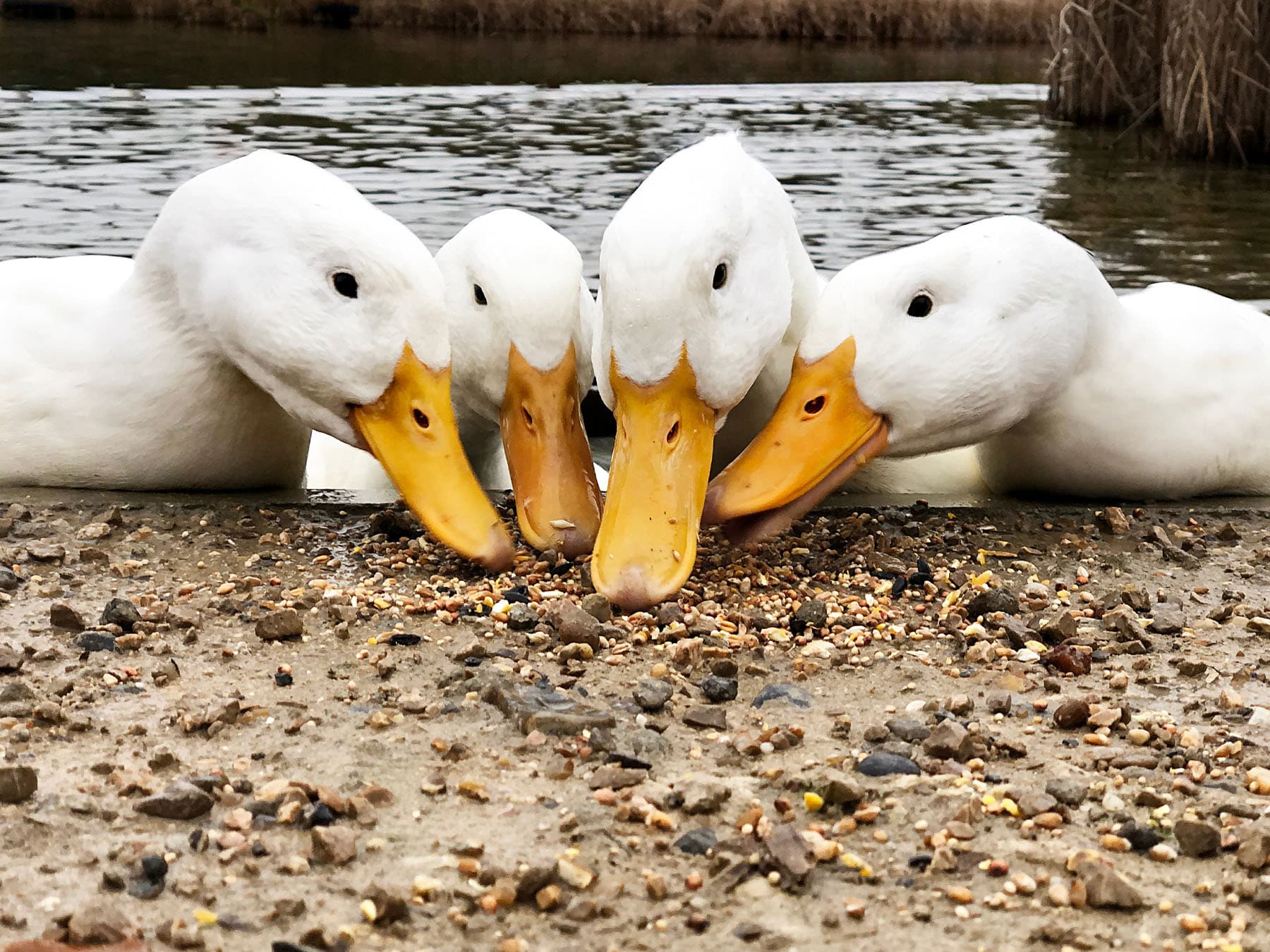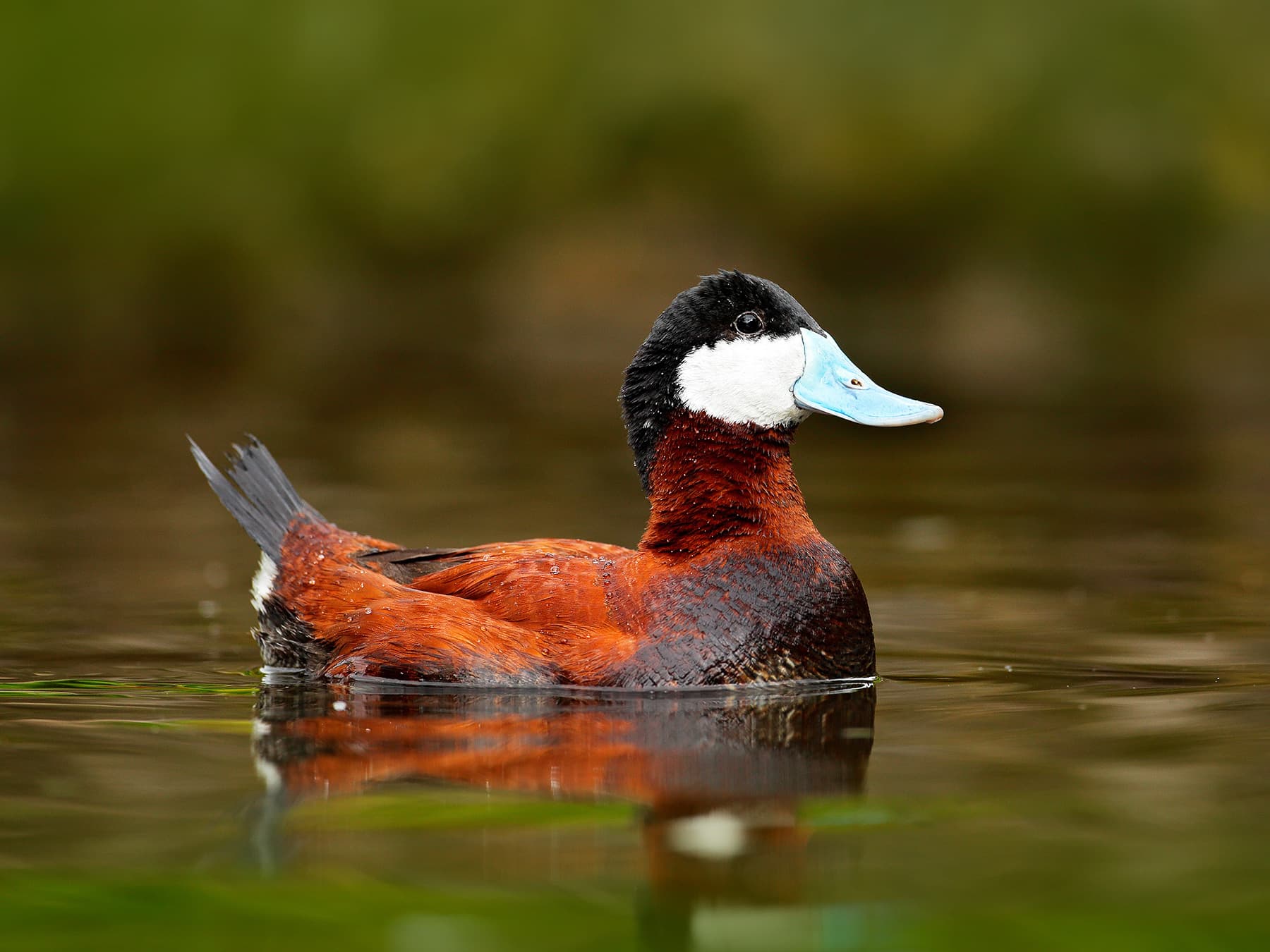
From the Journal
How Long Do Ducks Live? An In-depth Guide of Duck Lifespan
Ducks are hardy birds that can survive in a number of diverse and varied landscapes around the world. They are particularly common in the northern hemisphere, where many species face harsh winters and competition for food.
These factors and others may affect a duck’s chances of survival in the wild, but how long on average do ducks usually live? And do ducks raised in domestic settings live for longer? Read on to learn more.
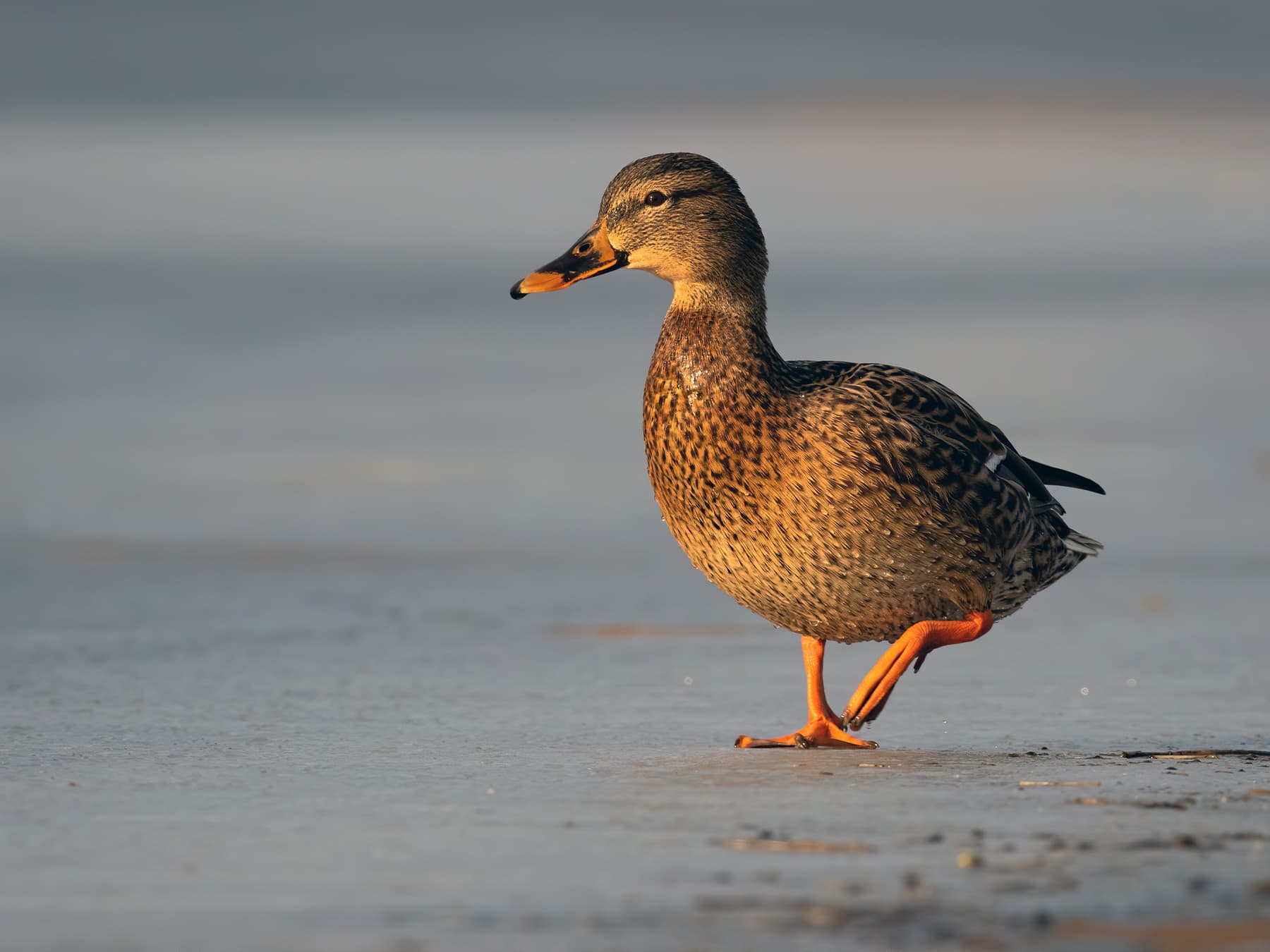
Living in the wild, a duck can expect to live for up to 10 years, depending on breed and location. Ducks raised as domestic pets or livestock will usually outlive their wild counterparts, as they are kept safe from predators and supplied with healthy and regular nutrition.
Wild ducklings are at risk from a number of threats from an early age, and have a high mortality rate, with only one in ten surviving until breeding age for some species. Predation, disease, and inhospitable weather conditions are among the main causes of their early demise.
Ducks compensate for their high rates of mortality by raising comparatively large broods, with an average of 12 eggs per clutch for mallards.
To discover more about the life cycle of ducks and ducklings, and the differences in survival rates between wild and domestic ducks, please carry on reading.
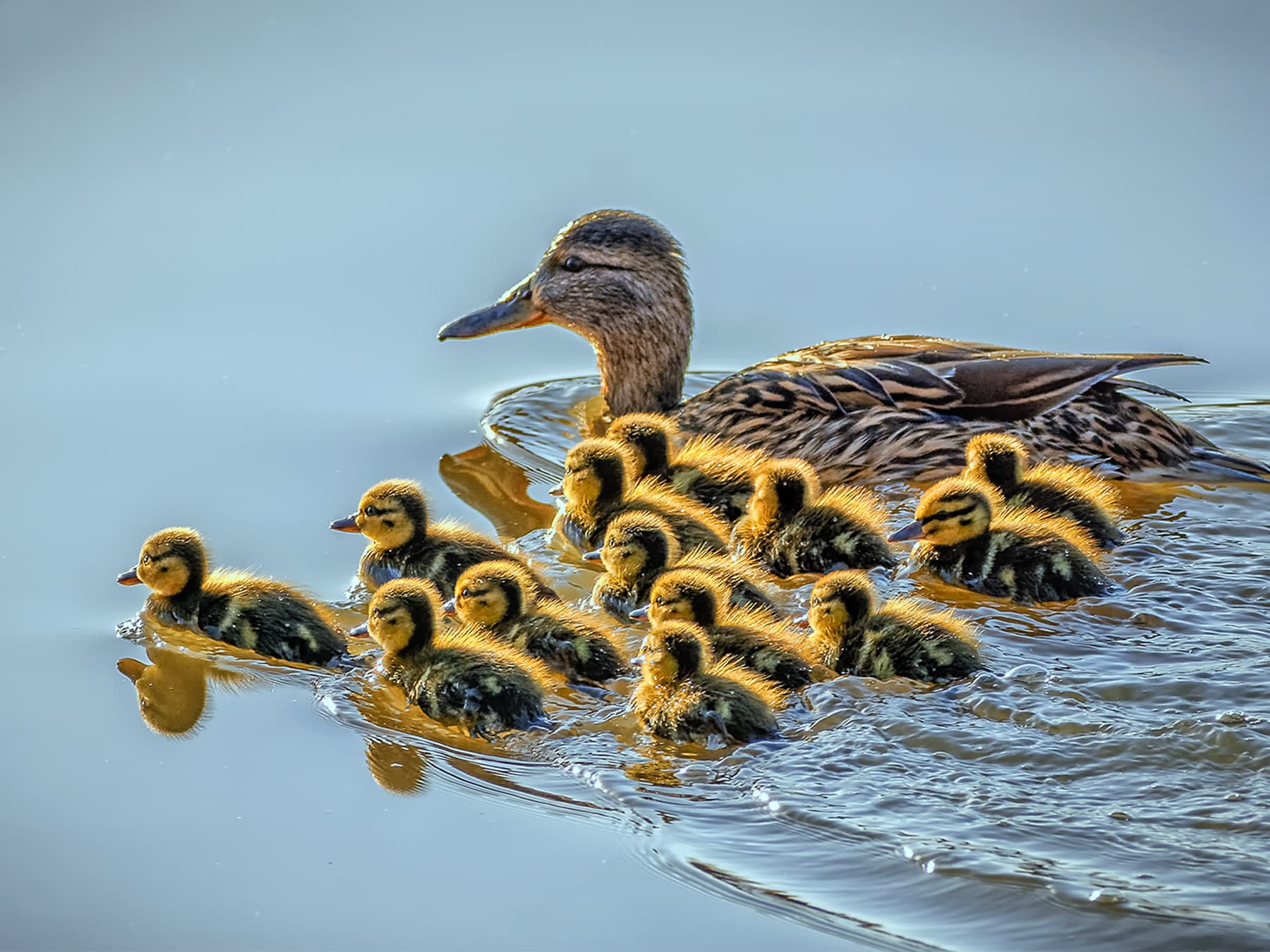
Average Lifespan: Wild vs. Domesticated Ducks
In the wild, the lifespan of ducks is typically between 5 and 10 years. In captivity, the outlook is more encouraging, with many domestically raised ducks living for up to 20 years or more.
Wild ducks, and ducklings in particular, are relatively easy prey for many larger birds, and survival rates of new hatchlings can be as low as 10 percent. The main threats to survival include predation, starvation, disease, and natural causes, including extreme weather.
Domestically kept ducks are shielded from many of these external factors and are able to enjoy longer lives, provided with nutritious food, health supplements, and veterinary attention if needed. Many also benefit from being kept in sheltered, secure enclosures, safe from predators.
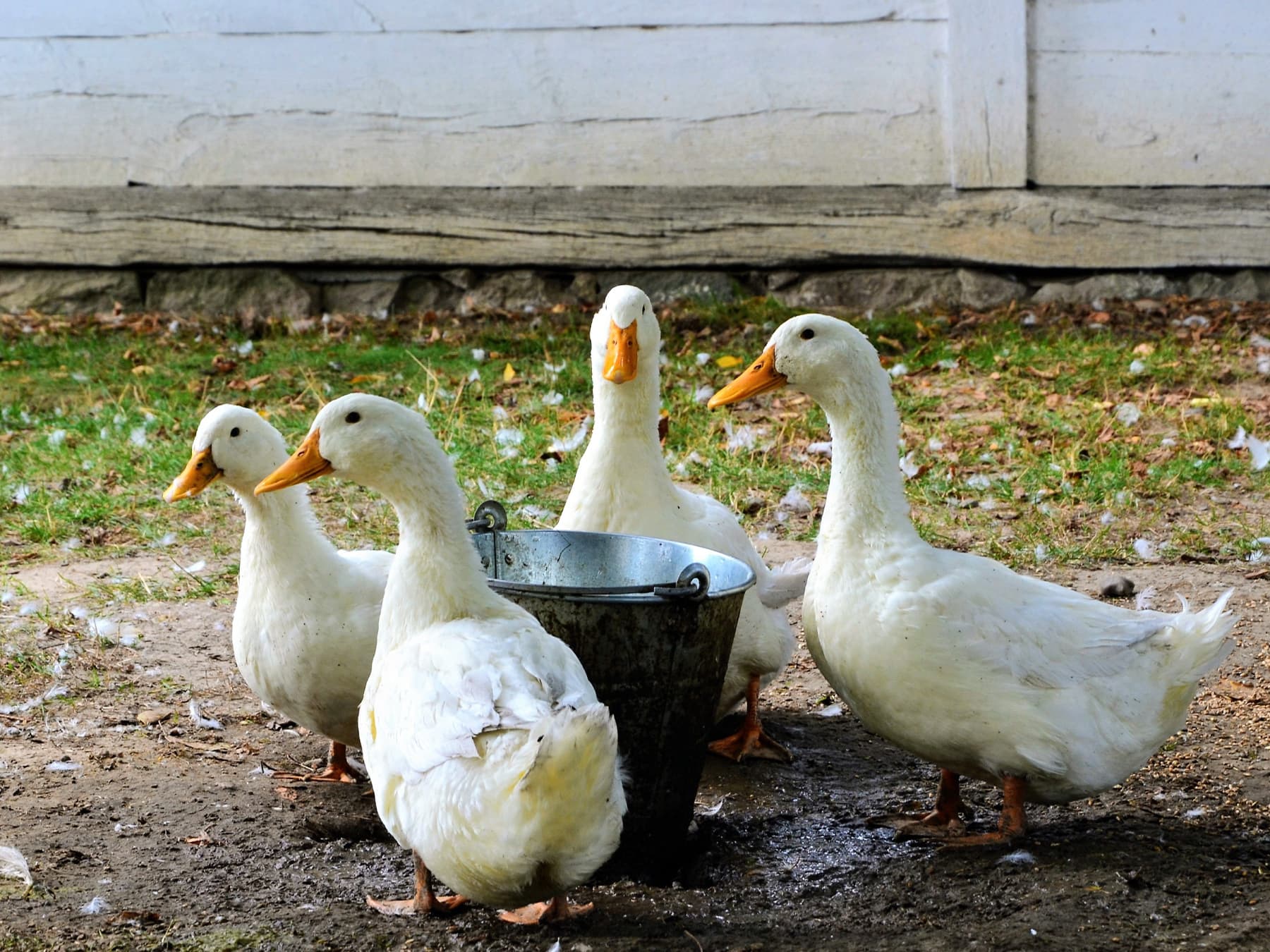
Life Stages of Ducks: From Duckling to Maturity
Egg Stage
The incubation period of ducks varies from breed to breed, with some hatching after only 22 or 23 days (Garganeys and Northern Pintails), and others brooded for a much longer period before hatching. Muscovy ducks hatch after around 35 days, while for Wood ducks, incubation can last for as long as 37 days.
The average time across all duck species is usually around 28 days, seen in Mallards and Pekin ducks, although a few days earlier or later is also common.
While incubation is ongoing, female ducks spend as much as 99 percent of their time on the nest each day, leaving only for brief respite breaks to forage for food.
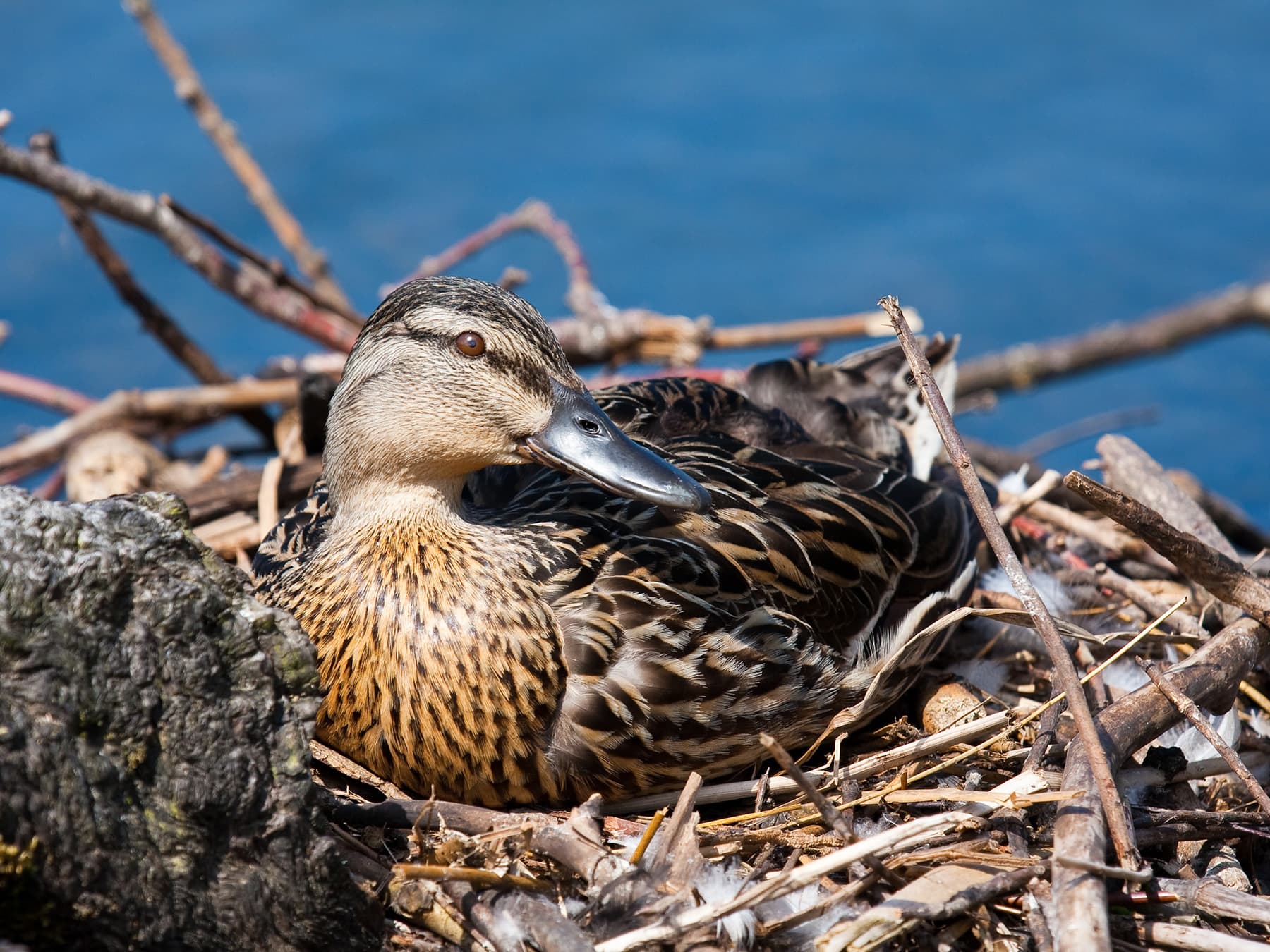
Ducklings
Ducklings are born covered in down and fairly well developed and are able to swim and walk almost straight away, but this does not mean they’re ready to go it alone any time soon. They are able to survive on the nutrients from their yolk sack for up to 2 days, by which time they have usually been led to foraging waters and feed for themselves alongside their mother.
For the first 3 weeks, ducklings are covered in a soft down, but by the end of the third week, they are beginning to transition into their adult plumage, developing flight feathers to replace their initial fluffy covering.
Between 3 and 5 weeks, this full set of adult feathers begins to emerge, and by 7 weeks, they are able to take their first flight. In the first seven to eight weeks, they are entirely dependent on their mother for protection and support while foraging and roosting, but once they are able to fly, they are ready to go it alone.
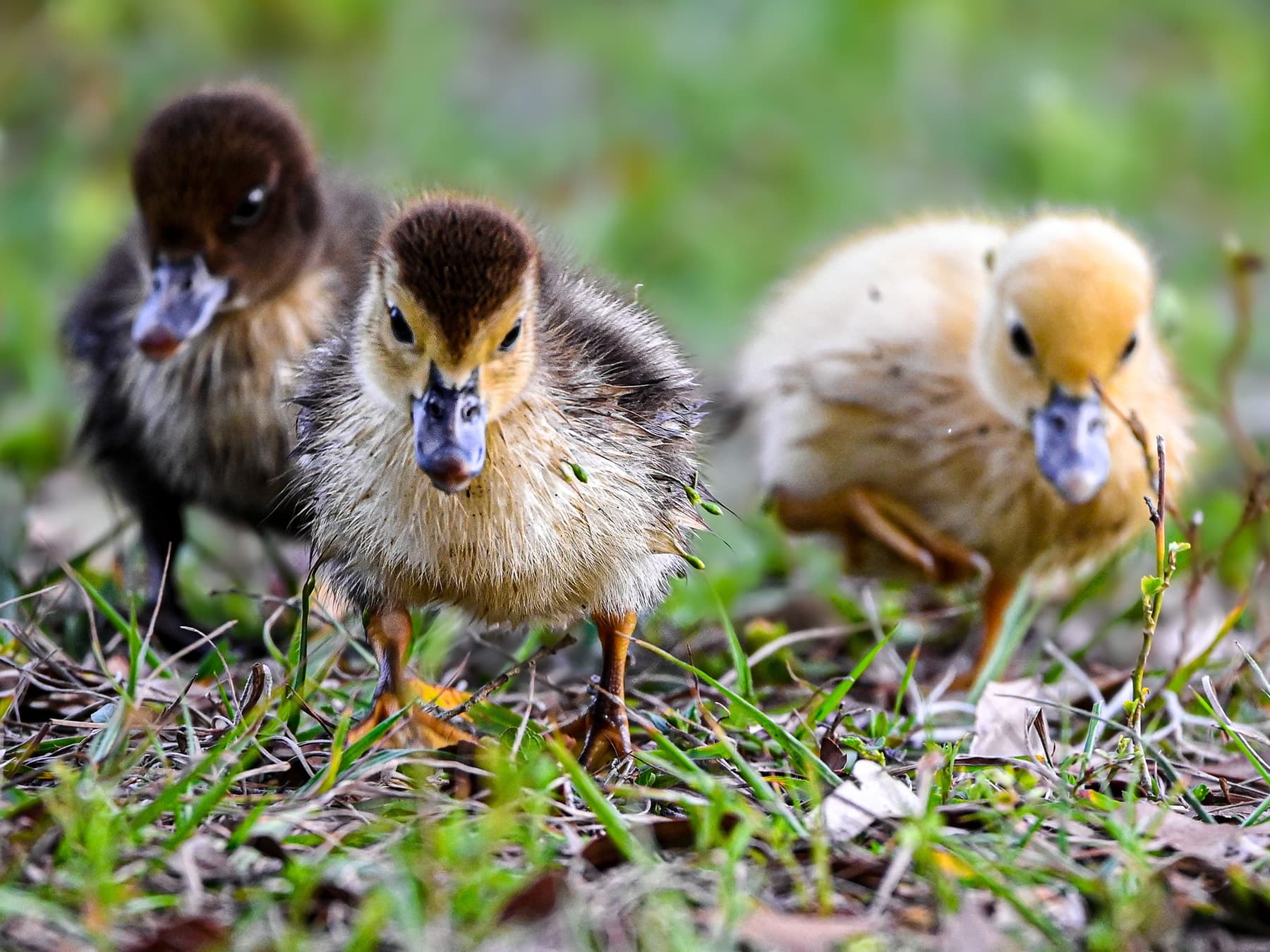
Juveniles: Transitioning to adulthood
Once young ducks master the art of flight, they are ready to leave the careful protection of their mother, and head to molting grounds where they develop their adult plumage. Predation continues to be a risk as they are no longer protected by their more experienced mother.
Although not all duck species migrate in winter, it can be a particularly challenging mission for inexperienced juvenile ducks and fall is a crucial time for building energy and fat stores and ensuring flight feathers are in prime condition.
Got a photo of a bird you can't identify?
Upload a photo and find out what it is in seconds — no account needed
Identify a Bird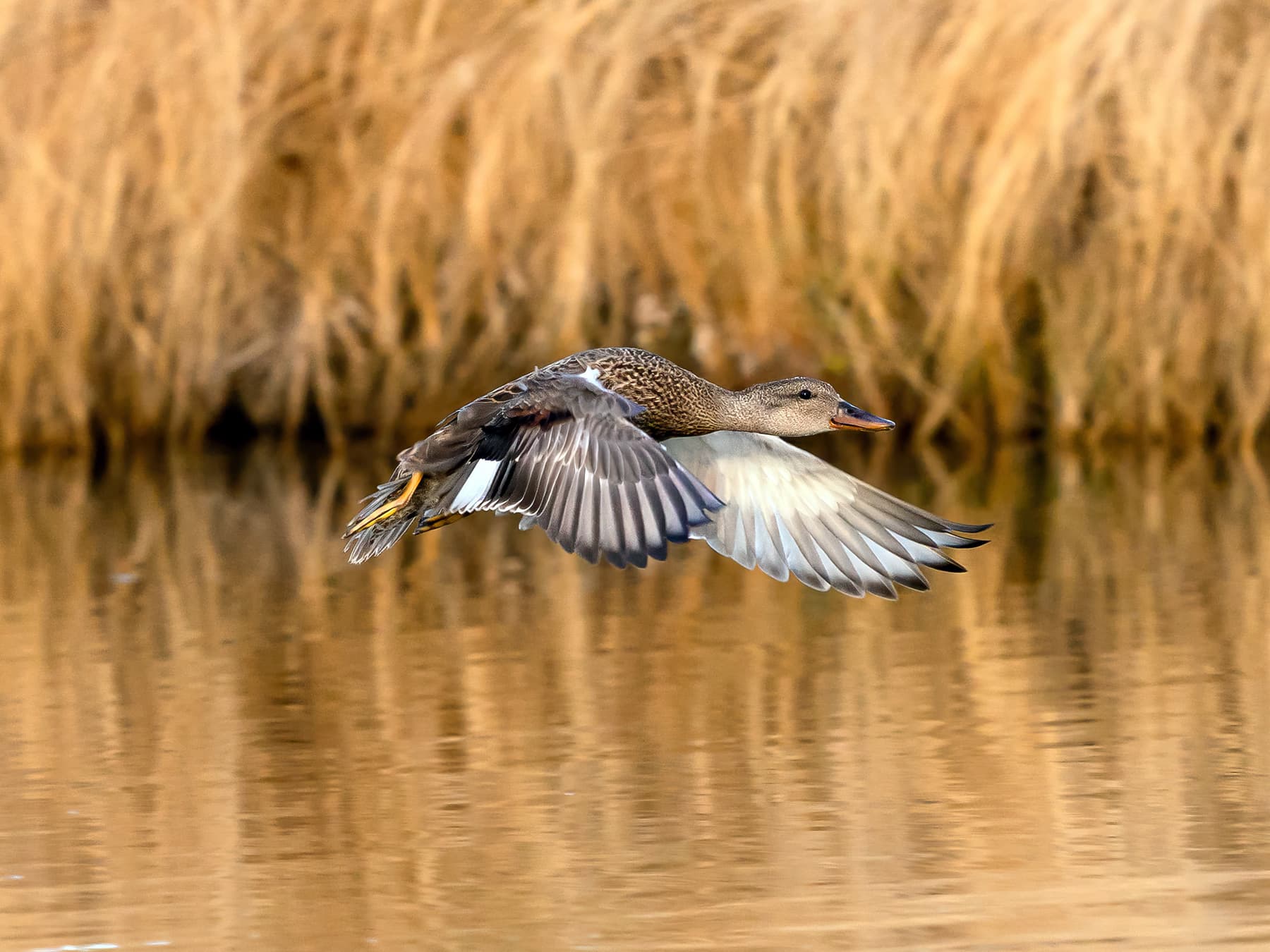
Adults: Maturity, reproduction, and aging.
Ducks are generally able to reproduce once they reach one year of age, and in the wild, they tend to raise one brood in a typical season.
In captivity, pairs may be more productive, with Muscovy ducks successfully hatching between three and four clutches each year. Pairs form in winter, and the breeding season begins in spring.
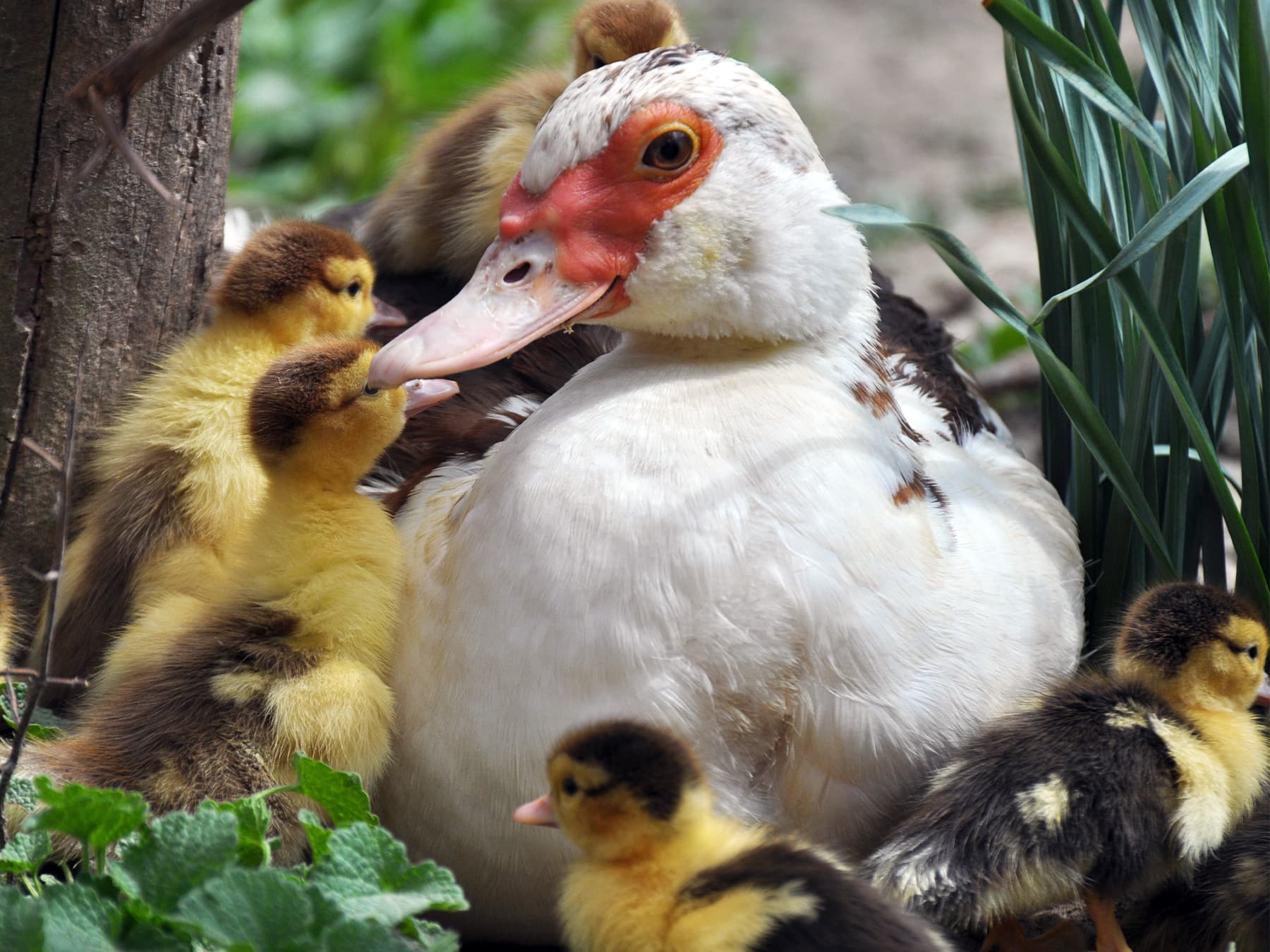
Typical Survival Rate for Ducklings
On average, ducklings have a fairly poor survival rate, ranging from as low as 10 percent in some species to up to 70 percent.
With little more than a 50 percent survival outlook from birth, factors such as predation, starvation, adverse weather conditions, disease, and common parasites all may contribute to young ducklings not reaching adulthood. As they are unable to fly until they reach around 7 weeks, they are easy prey for herons and other predatory water birds, as well as for pikes and aquatic mammals.
Only around 30 percent of Mallard ducklings live beyond their first year, and as many as 60 percent die in the first 30 days after hatching.
For Eider ducks the outlook is particularly bleak, with only around 10 percent reaching fledgling age. For this reason, clutches can be much larger than in other bird species, to maximize the chances of at least some ducklings surviving to adulthood. A female Mallard was counted to have hatched 24 young in 2013.
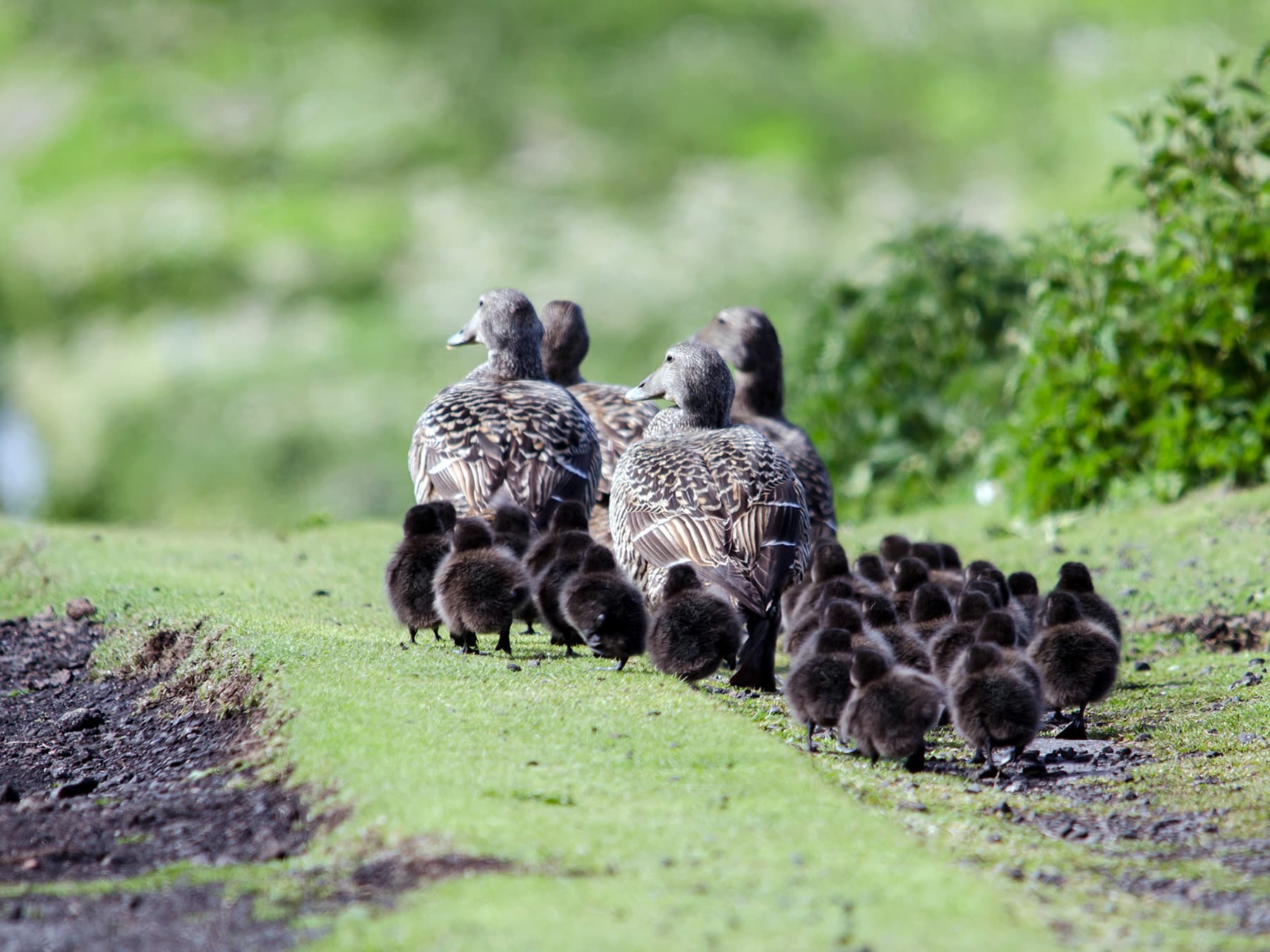
Factors Influencing Duck Lifespan
Predation
Wild ducks are at significant risk of predation from land mammals, as well as those living in water, larger birds, and even predatory fish species.
Badgers and foxes are among the chief threats to ducklings and adult ducks, and mink, otters, stoats, and weasels are known to raid nests for eggs and will also attack newly hatched ducklings. Birds of prey, herons, crows, and jays are all common predators of ducklings, while young ducklings are also taken by pike, bullmouth frogs, bass, and snapping turtles.
Predator evasion is vital to survival, and comes in various forms, with diving ducks usually disappearing underwater and swimming undetected to safety to avoid land-based threats. Roosting on water removes the threat of attacks from nocturnal land predators, and flight is used to escape any dangers that might lurk in pond or river waters, such as large fish, snakes, frogs, or turtles.
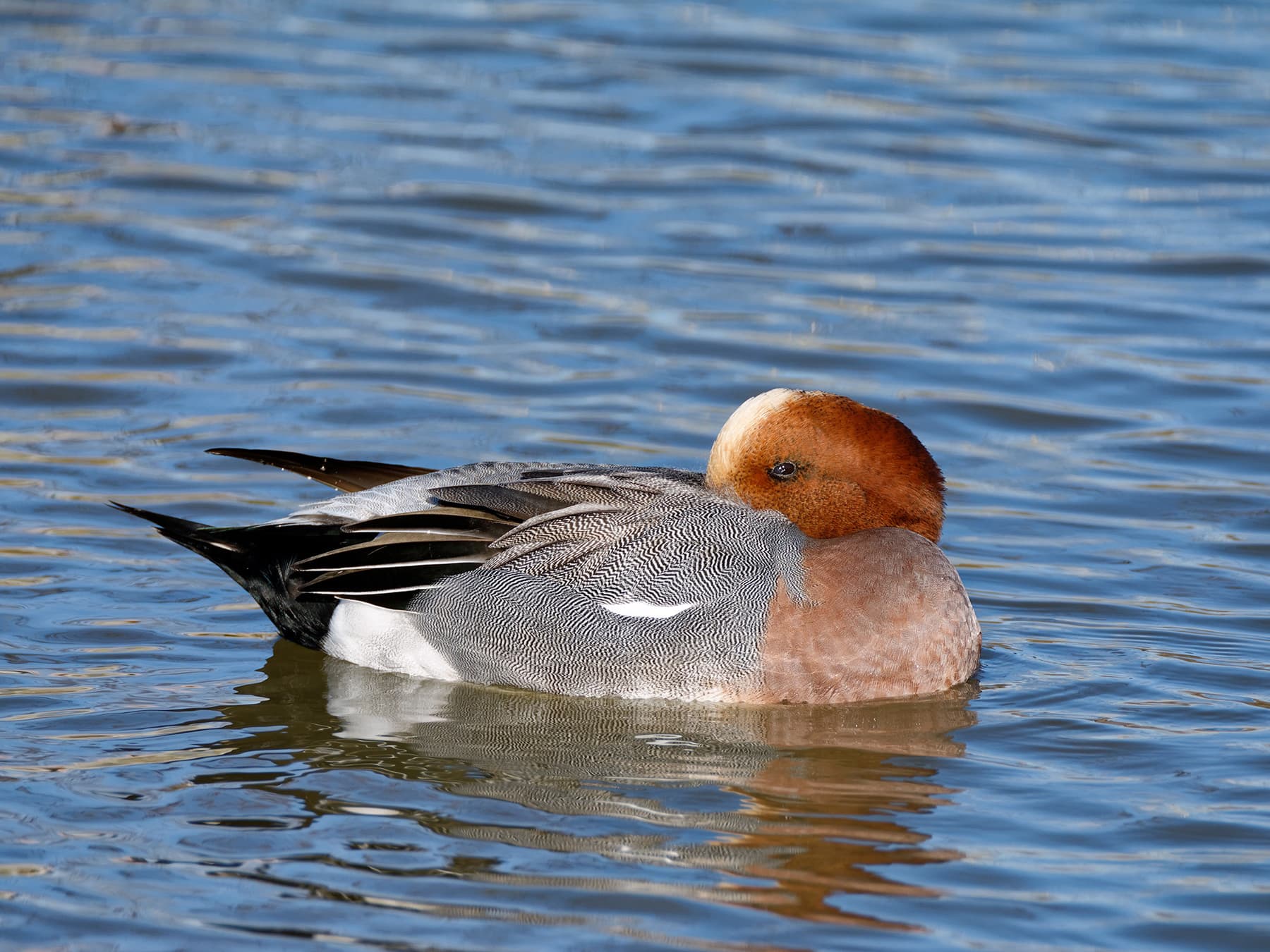
Environmental Challenges
Habitat loss and pollution are major factors in the long-term survival of ducks in the wild. With urban sprawl and development, many natural foraging sites and breeding grounds are lost, and increased competition exists for suitable nesting spots in wetland habitats.
Polluted waterways from industry and other sources can also endanger the health and longevity of waterfowl. Extensive drought and loss of grassland and wetland habitats in the US Prairies during the 1980s was believed to be a major factor in local duck population declines.
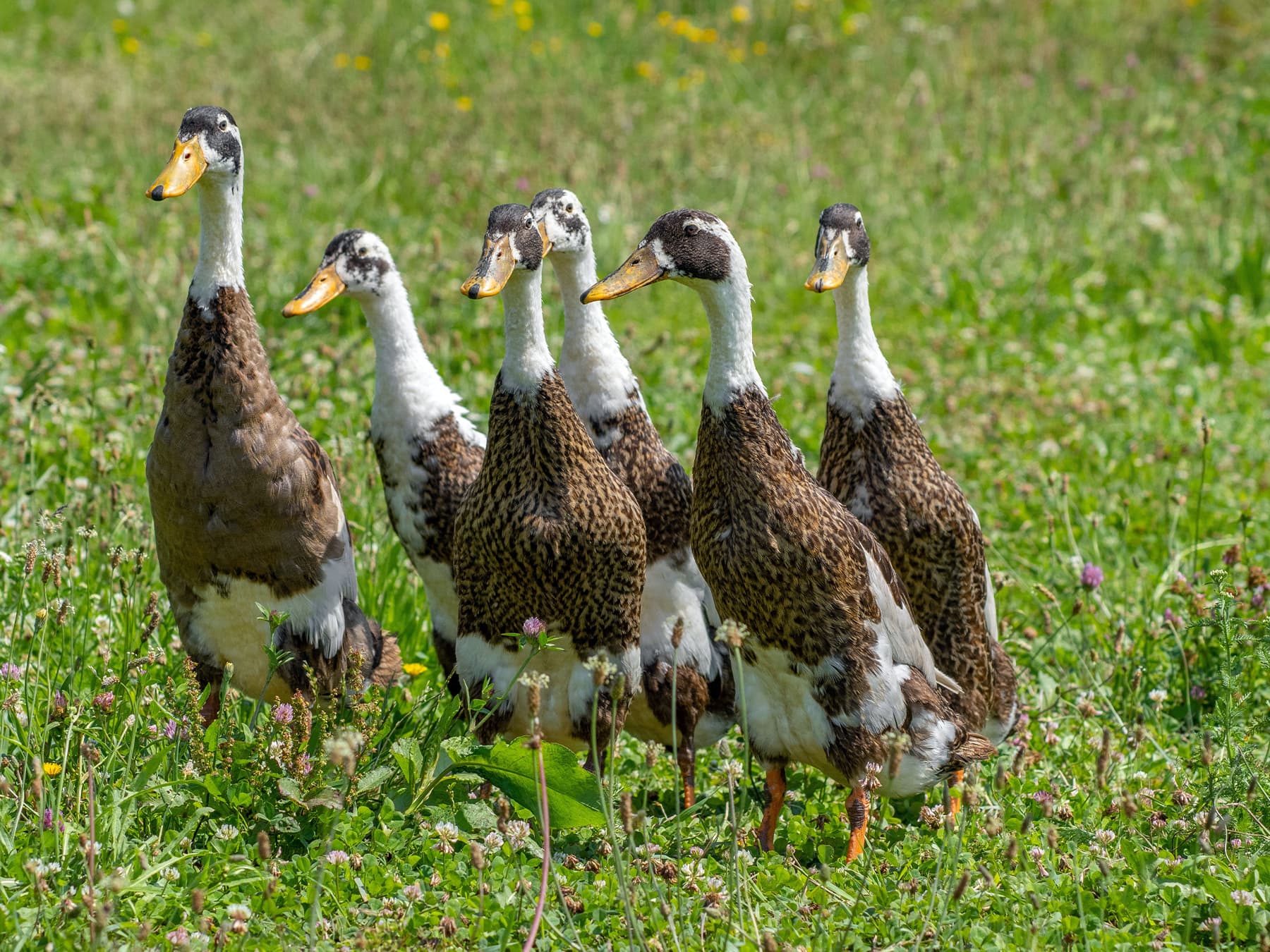
Disease & Parasites
Ducks and other waterfowl are susceptible to a number of common and severe diseases. Avian flu is a particular threat to all poultry, ducks, and geese, and is highly contagious among infected birds. Other diseases that affect ducks include duck viral enteritis (DVE), duck viral hepatitis (DVH), riemerella anatipestifer, avian cholera, and colibacillosis.
Internal parasites are common in both domestic ducks and wild waterfowl and should be treated as a matter of urgency as they can lead to more severe health problems in birds and humans alike.
Nutrition: The role of diet in duck health and longevity
Ducks that have access to a balanced, healthy diet have the potential to outlive wild ducks as they benefit from a regular supply of minerals, vitamins, and supplements to ensure they have as much protein, calcium, and fruit and vegetables, as well as clean and fresh water each day.
Wild ducks are not always able to guarantee high-quality foods or sufficient nutrients, and clean water may be in short supply in their natural wetland habitats.
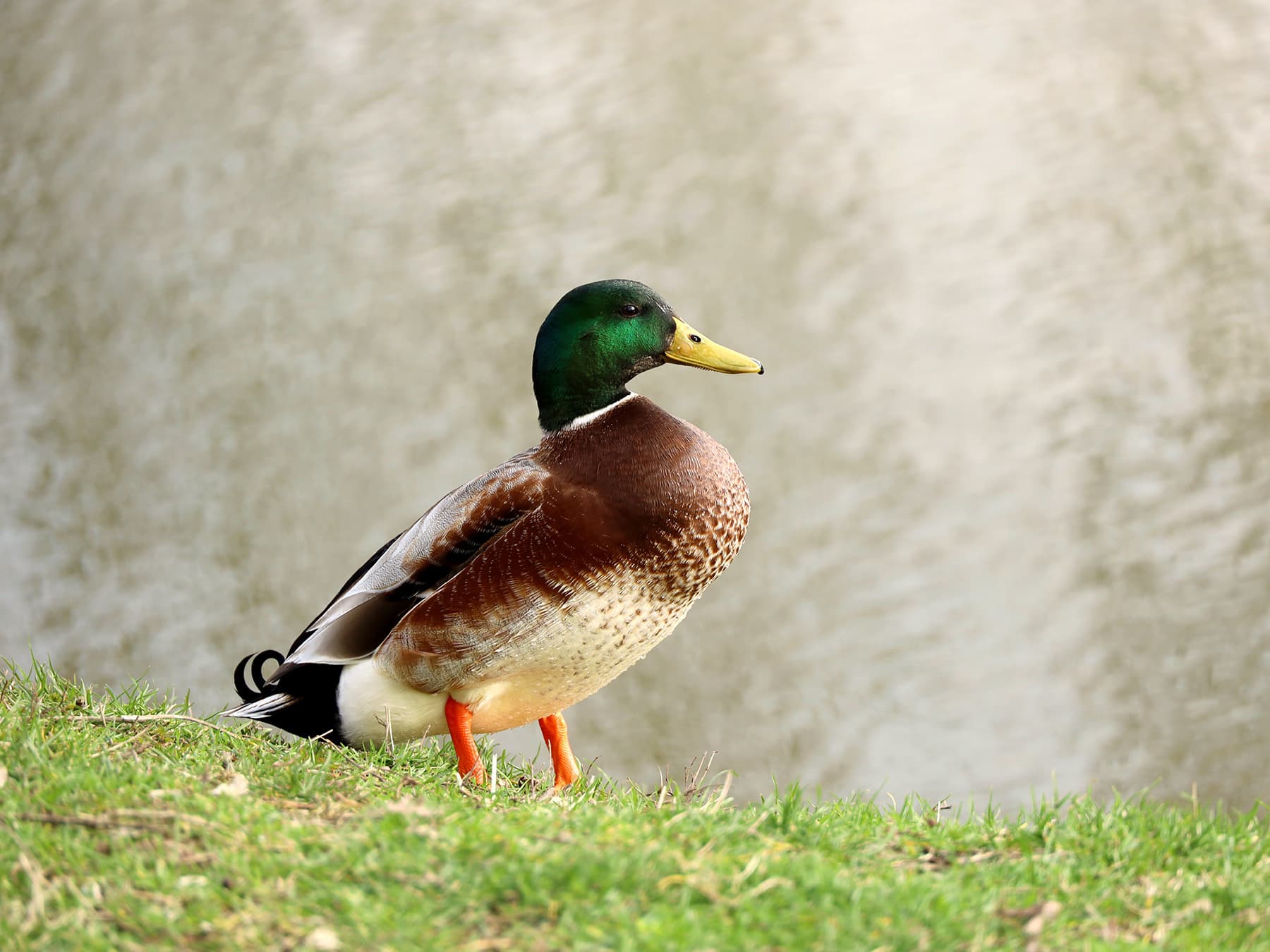
Migratory Ducks: The Impact of Migration on Lifespan
Long-distance migration is a challenge for any bird species, with lengthy flights to suitable wintering grounds beginning each fall. Ducks are no exception and must ensure a period of intense feeding to build up sufficient energy stores to sustain their journeys.
Bad weather and a lack of suitable feeding grounds at stopover sites are two major concerns that may prevent a migrating duck from safely reaching its planned winter destination. Sheer exhaustion from undertaking a lengthy flight is also another reason that not all migrations end well.
Human-made structures and machinery can pose a threat to migrating ducks, with structures including wind turbines and power cables providing obstacles that may not immediately be visible to ducks in flight and can lead to fatal collisions.
Airplanes are another major challenge to migrating waterfowl, flying at a great height and engine strikes can prove catastrophic.
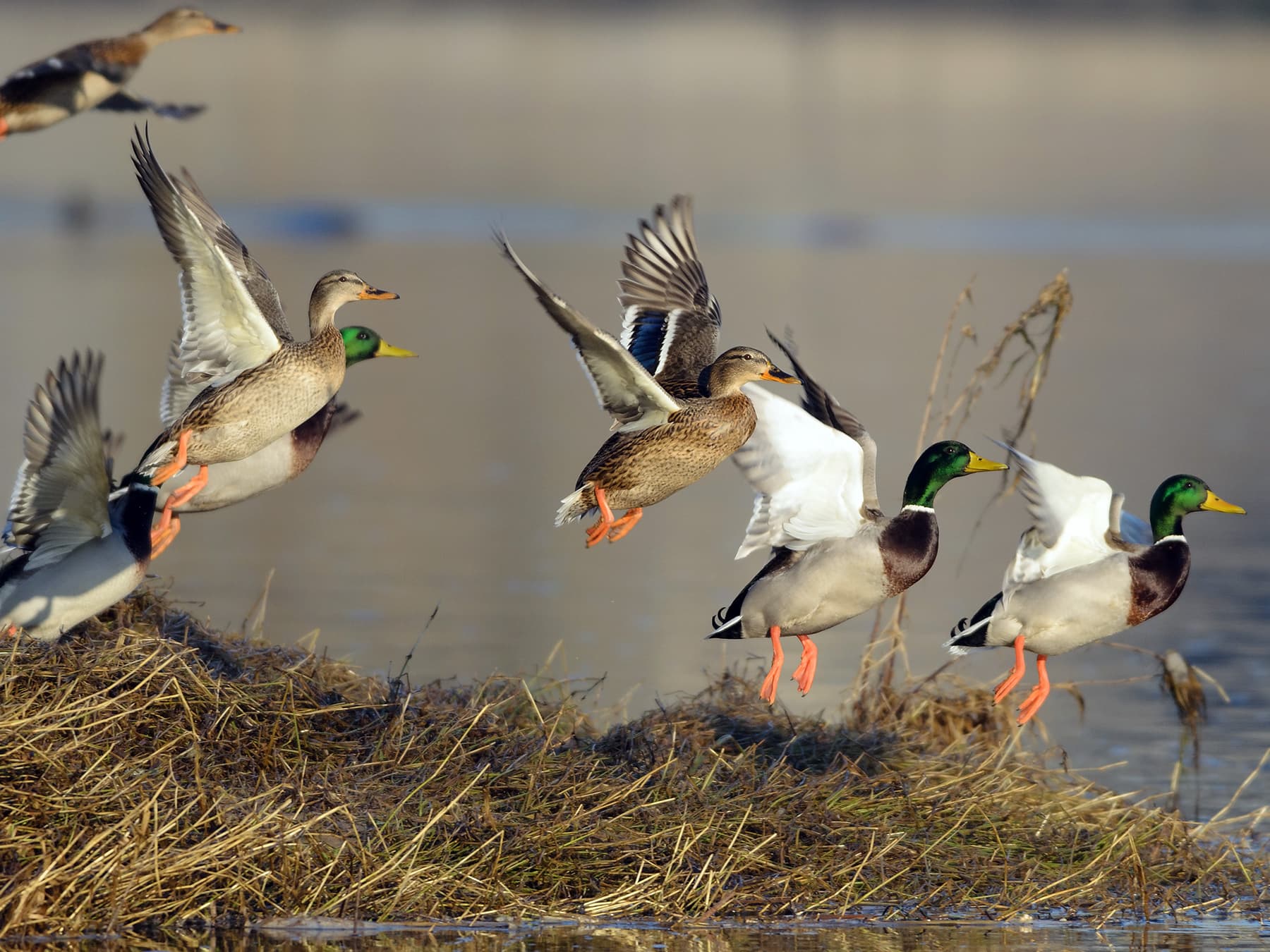
Human Interactions and Influence on Duck Lifespan
Positive roles
Wetland reserves and conservation areas are key in maintaining healthy duck populations, with protected natural habitats supporting safe breeding grounds and pollution-free waters. Migratory ducks typically display a high degree of fidelity to nesting grounds and will return in subsequent years if they find a spot where they are able to breed successfully.
Education and awareness of duck populations and how they can be supported safely are also vital in providing optimum habitats and foraging opportunities. People are increasingly aware of the risks of feeding bread to ducks and are able to make more informed choices about what is appropriate.
Detrimental impacts
Not all human interactions with ducks have a positive impact on their overall health and population status.
Increased construction rates and destruction of wetland habitats have led to habitat loss in many parts of the world, and the detrimental impact of polluted waterways from chemicals, sewage, litter, and plastic on the future survival of ducks and other waterfowl cannot be overstated.
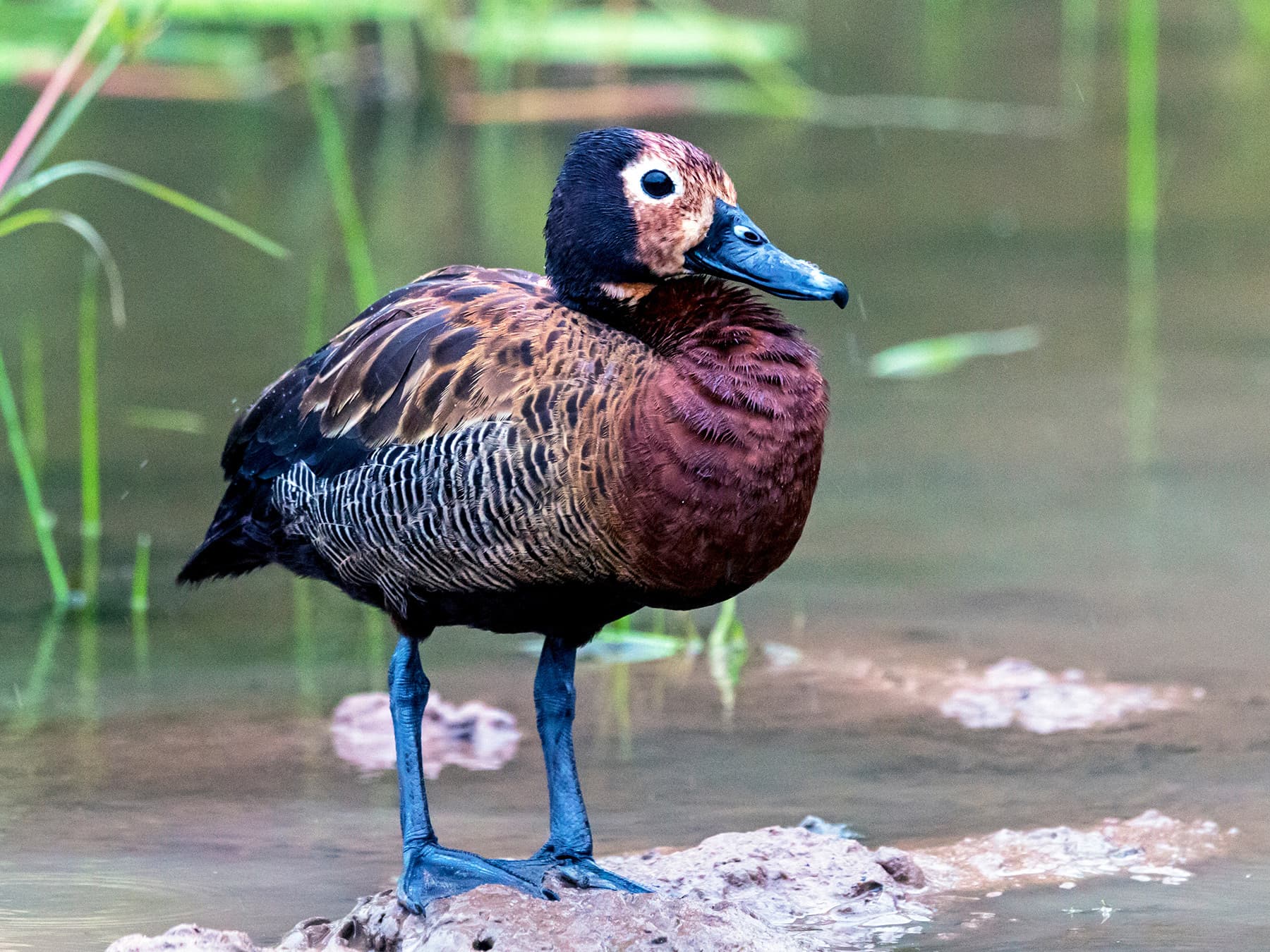
Breeds and Lifespan: Notable Differences
Not all duck species have the same expected lifespans, and there is some considerable variation between the typical average age that different duck breeds can expect to reach if they survive until adulthood.
One of the most widely known ducks, the Mallard, usually lives until at least the age of 5 years but on rare occasions may reach the age of 10 or 12 years.
Teals and Wigeons are among the duck breeds with the longest lifespans. A wild Eurasian Teal was reported as having lived for 27 years, while a wild Wigeon was documented to have lived until it was 34. On average, these ducks live for 14 and 20 years, respectively.
In contrast, Whistling Ducks have one of the shortest lifespans of all ducks: some records state an average life expectancy of just five years.
White ducks, or Pekin ducks, live for around 12 years which makes them one of the longer-lived breeds of domesticated ducks.
Muscovy ducks are quite long-lived in both the wild and when kept as domestic livestock. In the wild, they have an average lifespan of 8 to 12 years, while in captivity, they usually live until they’re 18 to 20.
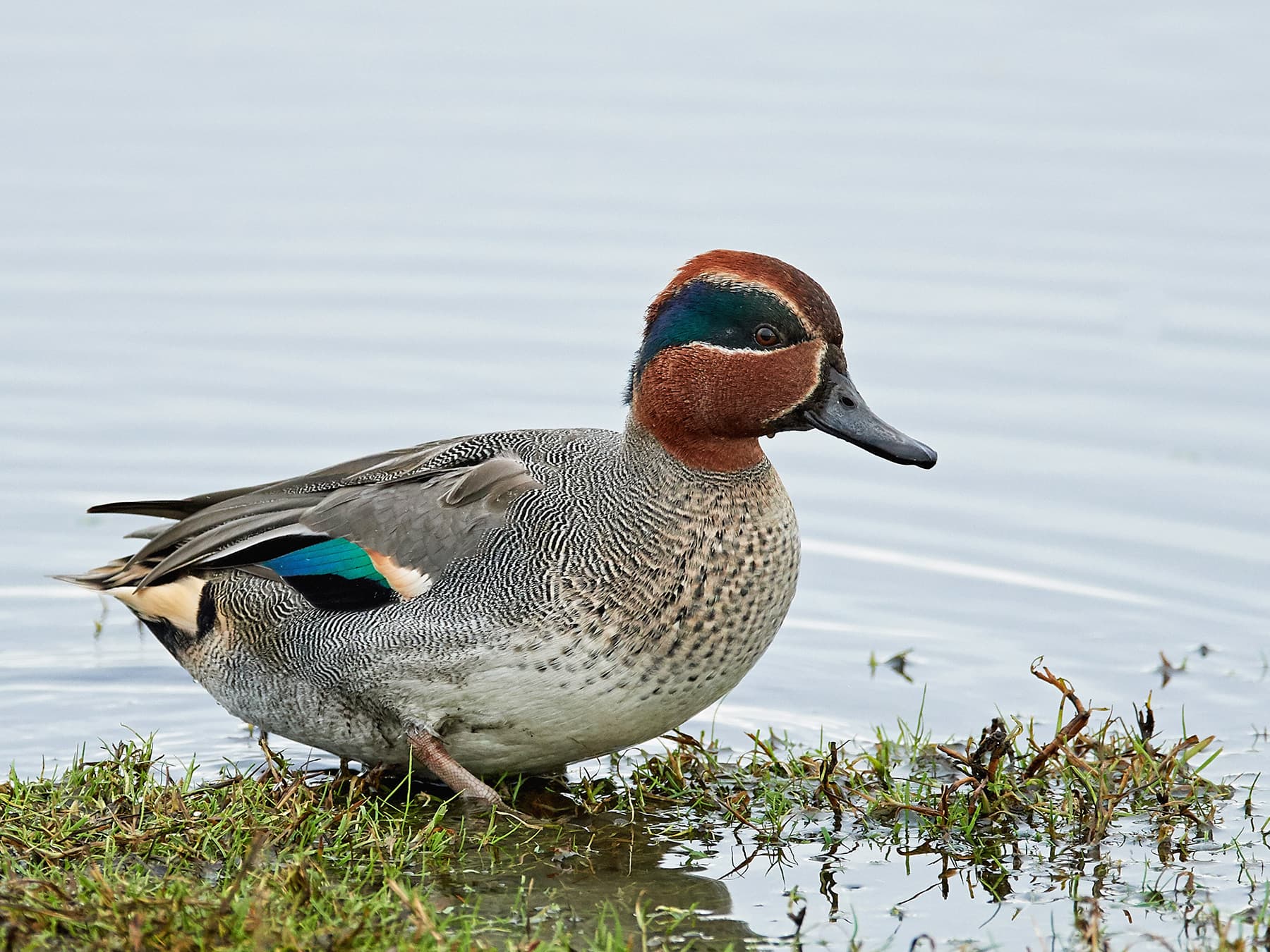
Conservation & Rehabilitation Efforts
Following periods of prolonged and severe drought in the US Prairie regions, conservation schemes aimed at restoring and preserving wetlands have been prioritized in several areas.
Reserves with predator controls have had some success in boosting declining populations, and habitat management programs, combined with favorable weather conditions have helped to improve the outlook.
Wildlife rehabilitation centers are vital in the care of injured and orphaned ducks and ducklings.
Expert care and support are offered to birds that would struggle to survive alone in the wild with deformities or vulnerabilities or ducklings that are too small or inexperienced, with optimum heating conditions and suitable dietary supplements provided for strength and development.
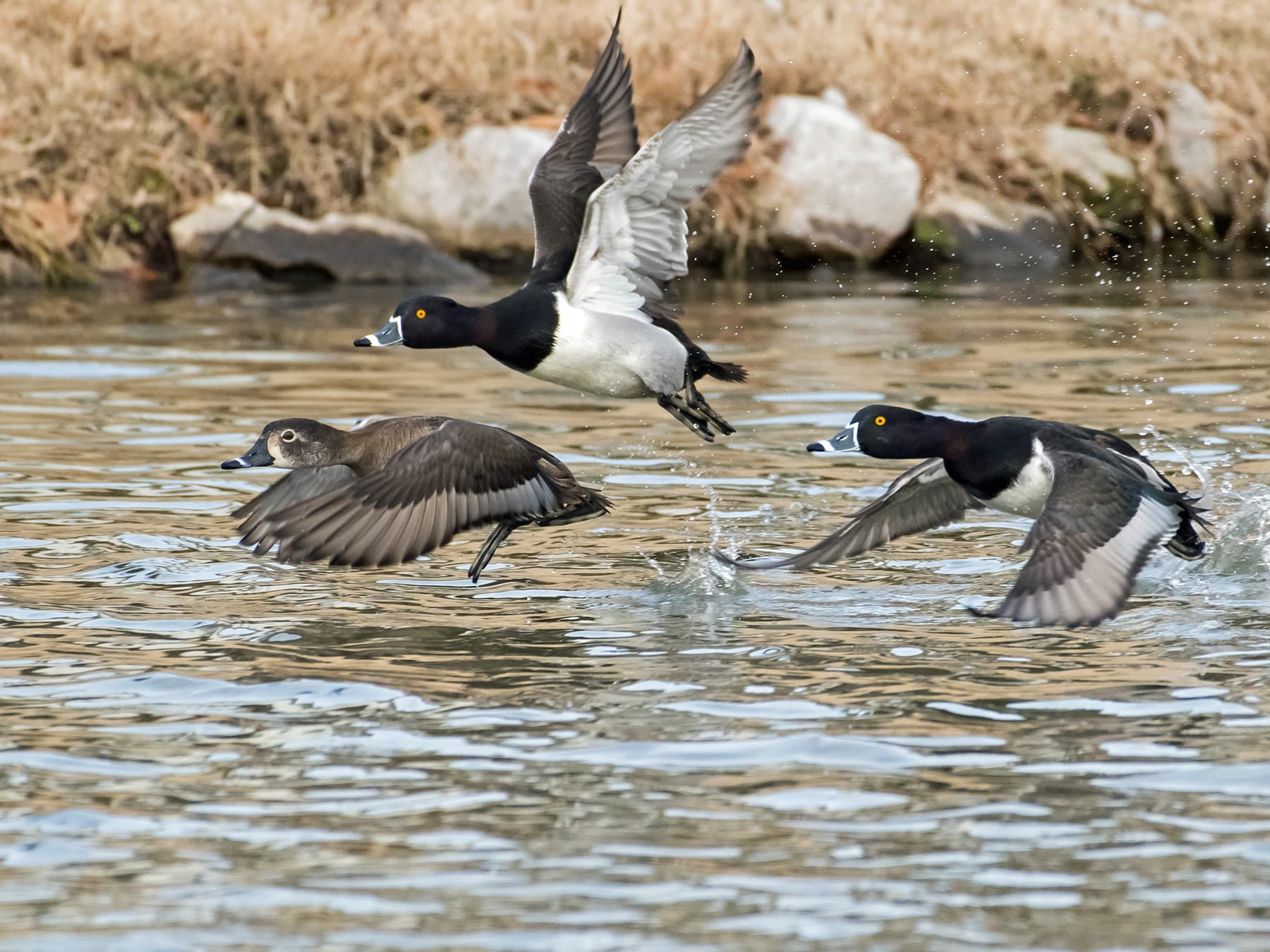
Summary
A range of factors can affect the lifespan of ducks, and whether they even survive beyond their first month of life.
Ducks that are raised as domesticated livestock will generally outlive their wild counterparts, due to more secure living conditions and a monitored, healthy diet. In the wild, predation, food availability, disease, and habitat loss may all have a negative impact on a duck’s long-term survival.
Certain breeds are naturally hardier and live longer than others, and geographical location is also important, with weather conditions playing an important role in a duck’s ability to breed and survive into adulthood.
In general, wild ducks will usually live for between 5 and 10 years, while those in captivity are more likely to live beyond this, frequently reaching up to 20 years or more.
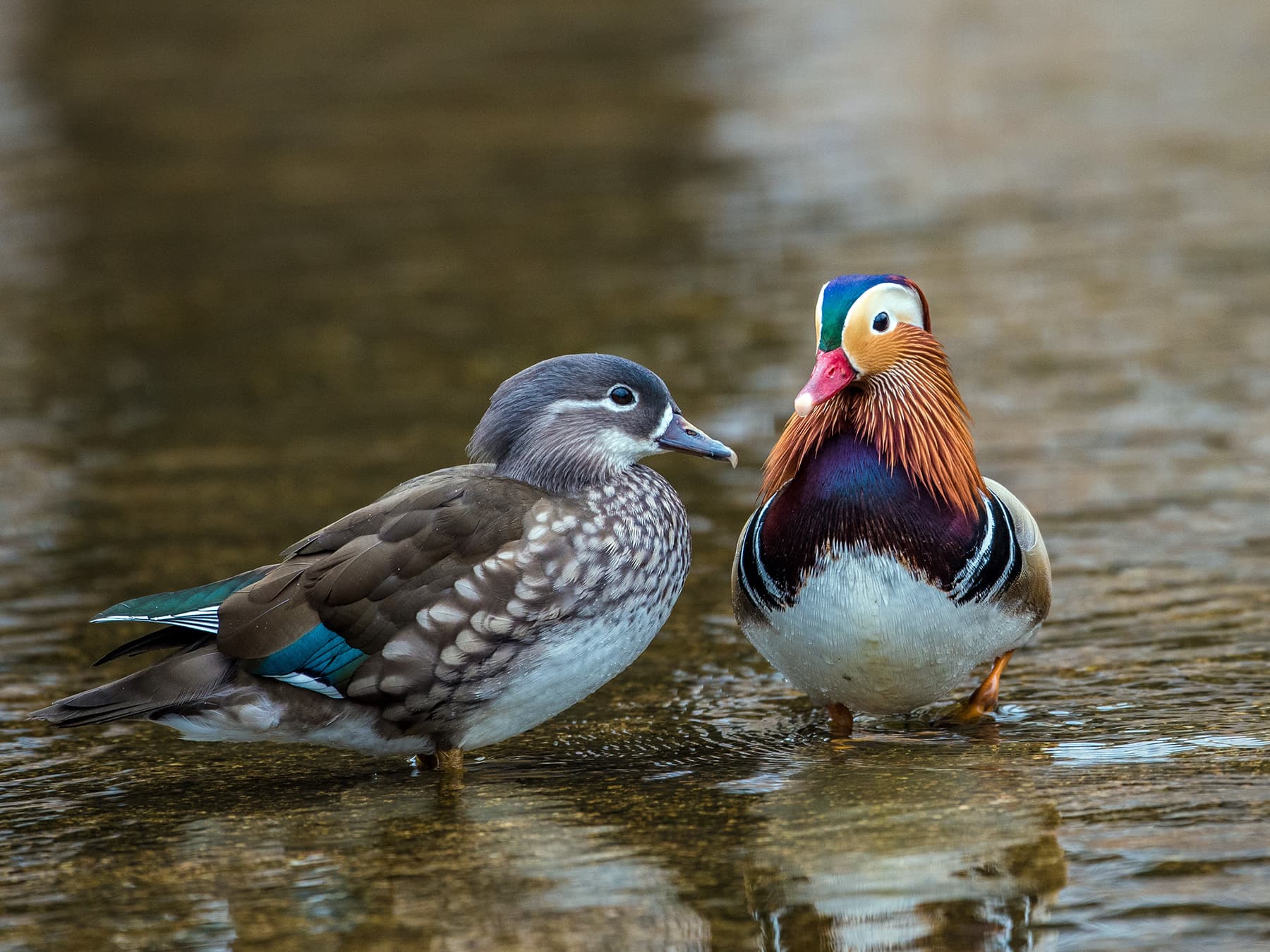
FAQs
Do ducks in urban settings live longer?
Wild ducks have adapted well to survive in urban areas, settling in city center parks and ponds and frequently seeking shelter in shrubbery in backyards. Mallards are particularly associated with residential areas and places with human settlements and thrive in busy settings.
Ducks are generally adaptable birds and can survive equally well in a rich variety of locations, including conservation areas, coastal waters, marshes and wetlands, city ponds, rivers and streams, and agricultural land.
How can one estimate the age of a duck?
It’s easier to estimate the age of a duckling than a mature duck, due to the clear visual differences that accompany each development stage.
Ducklings covered in fuzzy down are generally less than 3 weeks old, while ducks with the first signs of feathers are between 3 and 5 weeks of age. A full set of feathers is usually developed by around 5 to 7 weeks, with older ducklings mastering the art of flight by around 50 to 60 days.
In older ducks, the presence of any juvenile feathers would suggest they were in their first year. One way of differentiating between younger and older ducks may be to take a quick look at their tail feathers. In mallards, curled tail feathers are present in younger ducks, while straight, pointed tails are a sign of an older bird.
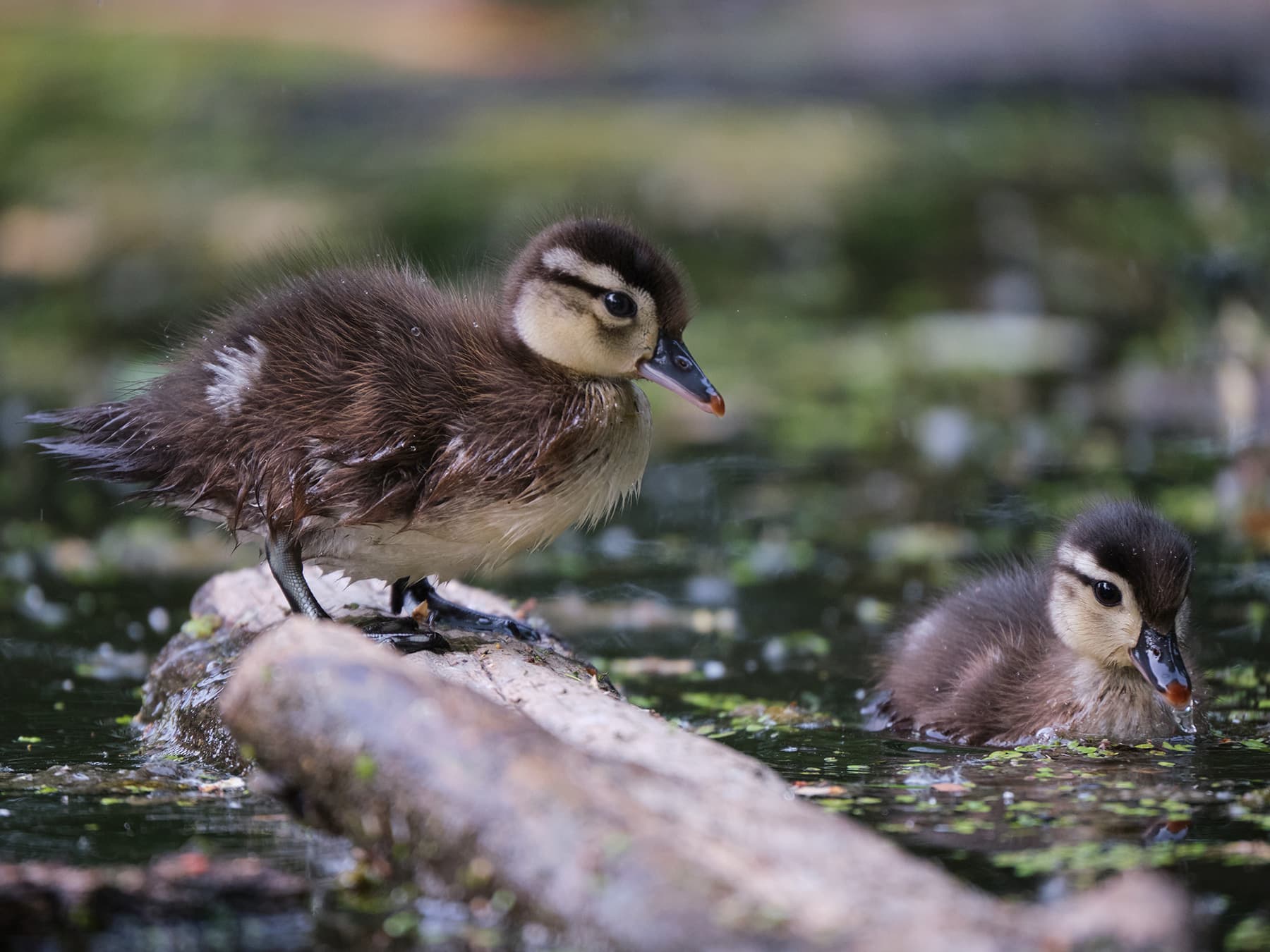
What role do duck hunters play in duck population dynamics?
Regulated duck hunting is a hot topic of debate, with arguments both in favor of and against the benefit and necessity of this pursuit as a method of population control. By controlling duck populations with annual fall hunting seasons, the pressure is relieved on wetlands that may be unable to cope with breeding numbers if populations were left to grow without regulation.
By regulating numbers and quotas in areas with particularly high densities recorded, it is argued that duck harvests are not disruptive to natural rhythms and populations, and are vital in maintaining sustainable waterfowl population levels.
Others claim that more conservative quotas are needed in light of falling populations of different species for a number of external reasons, including habitat loss and wetland degradation.
Are domestic ducks as robust as wild ones?
Ducks raised in captivity may not be as well equipped to survive in the wild if released or escaped. Inherent survival skills are fine-tuned in the early days of life, including predator evasion and foraging.
For ducks that are used to being supported by humans and given shelter and protection, it may be rather a shock to the system to find themselves in the wide world with its accompanying risks. Most domestic ducks are flightless and would not be able to escape immediate danger by taking to the air.
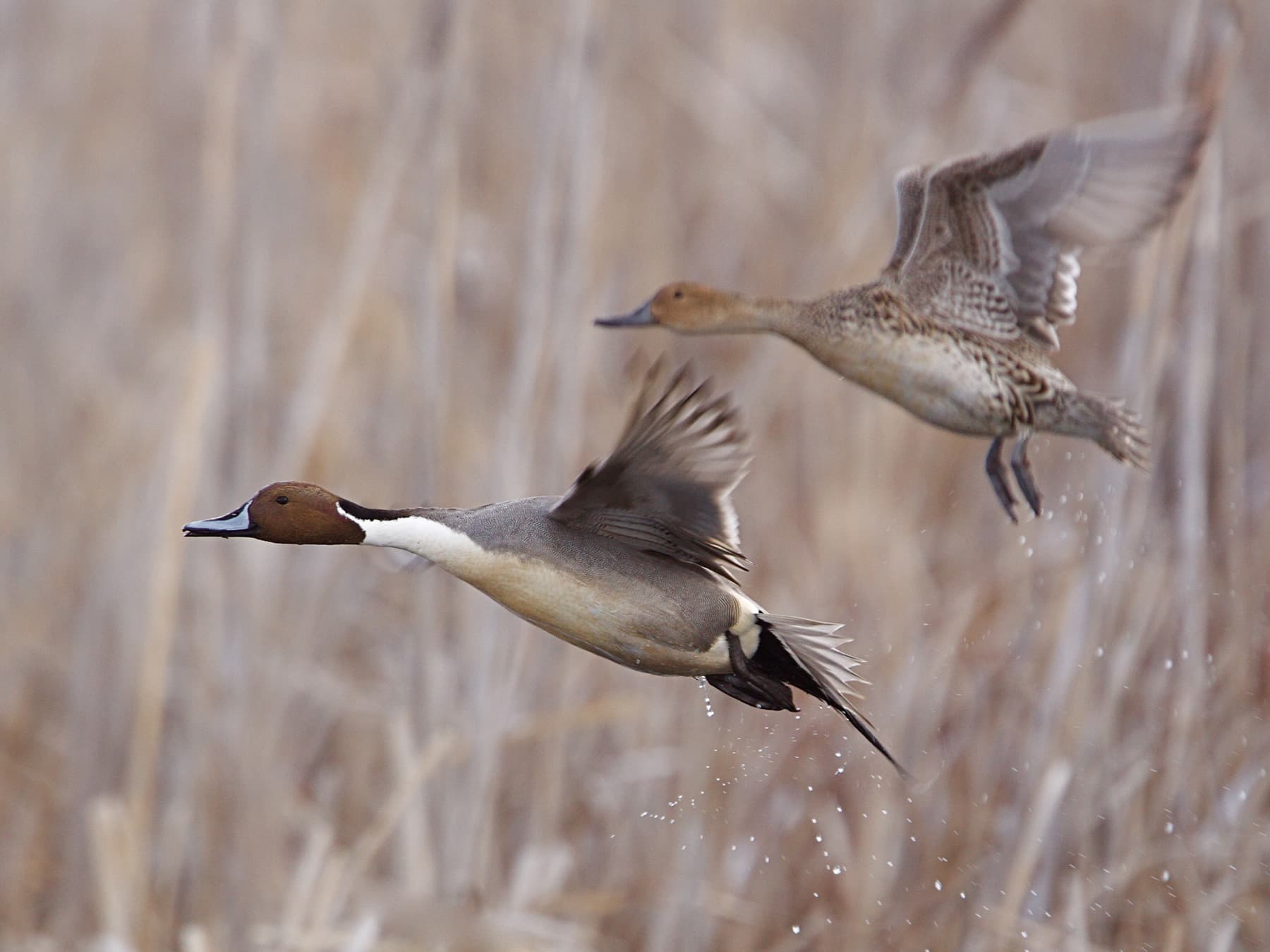
Do ducks grieve?
Ducks are sociable birds in the wild and form strong bonds with a mate, but will generally seek a new mate each year rather than reunite with a former mate.
In captivity, longer-term pairings are common and a deep sense of loss may be felt temporarily if one mate dies. It is not usual, however, for ducks to mourn the loss of a young duckling.
What is the longest lived duck?
According to the Guinness World Records, the oldest recorded domestic ducks were a pair that reached their 49th birthday in South Africa in 1966.
In more recent times, a 20-year-old female mallard called Desi was a contender for the oldest pet duck, with Ernie, another similarly aged duck, reaching 21 years of age in 2019.
Identify Any Bird Instantly
- Upload a photo from your phone or camera
- Get an instant AI identification
- Ask follow-up questions about the bird
Monthly Birds in Your Area
- Personalised for your location
- Seasonal tips and garden advice
- Updated every month with new species
Associated Species
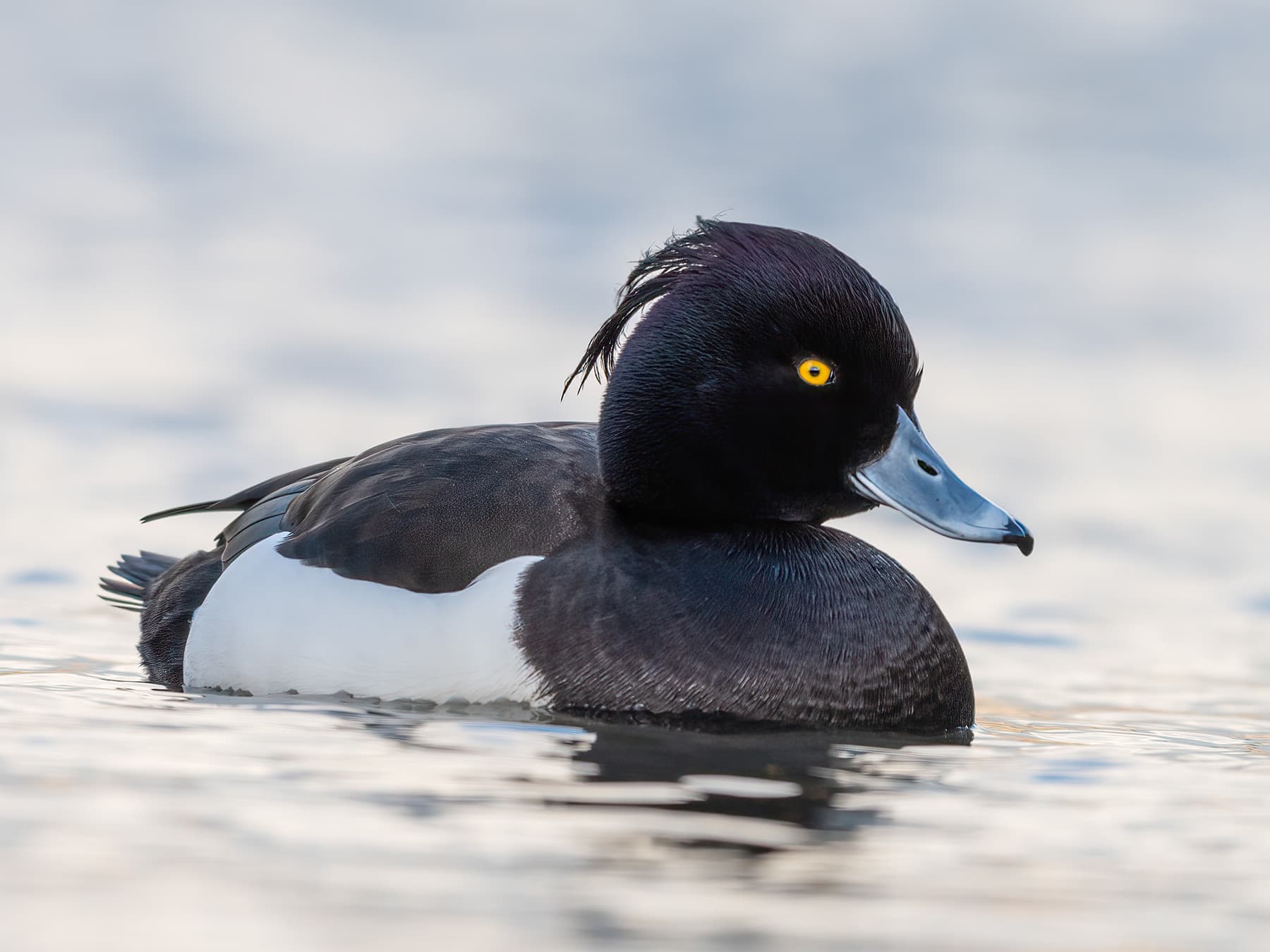
Tufted Duck
Aythya fuligulaLC
Ducks, Geese & Swans
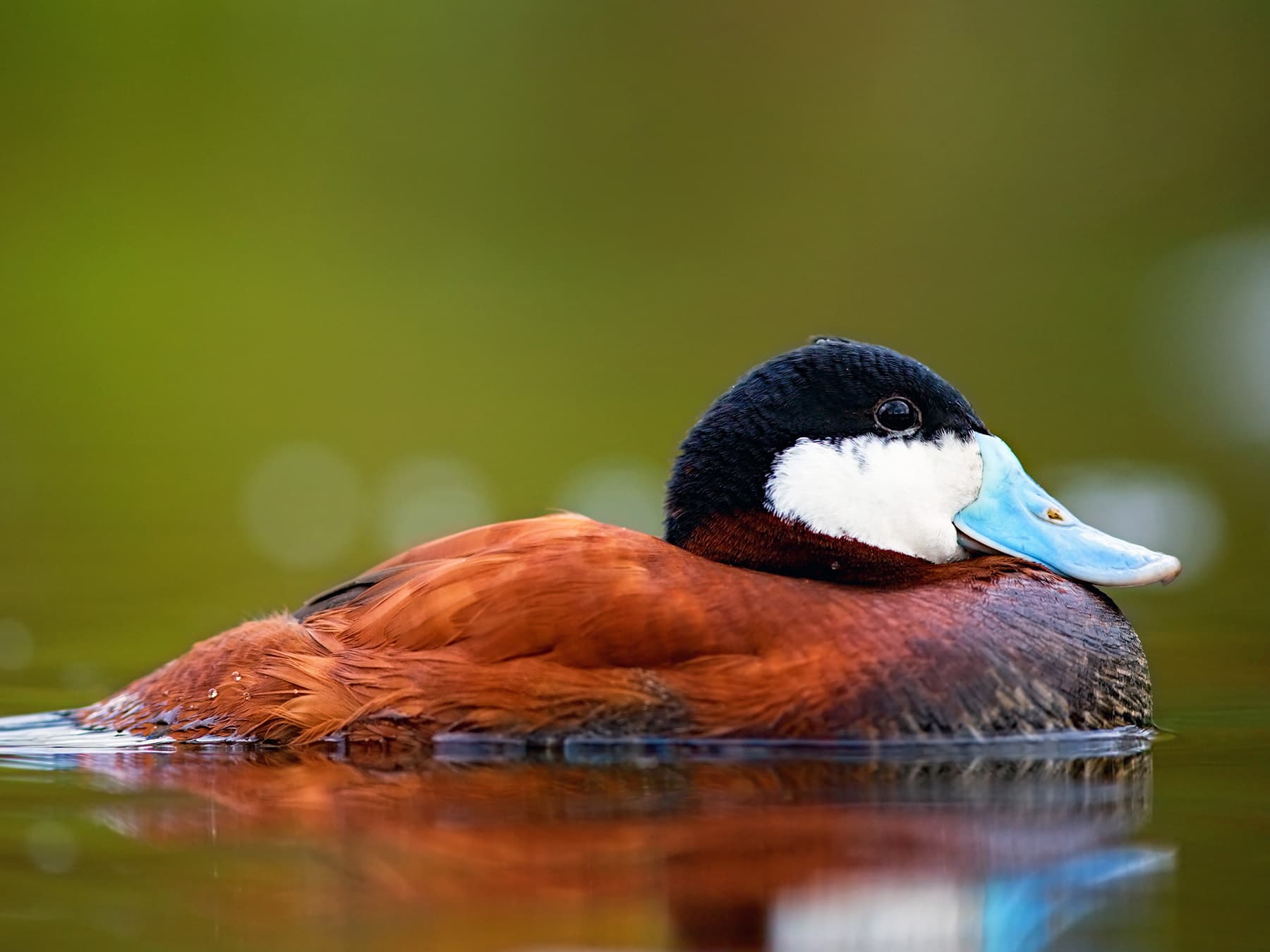
Ruddy Duck
Oxyura jamaicensisLC
Ducks, Geese & Swans
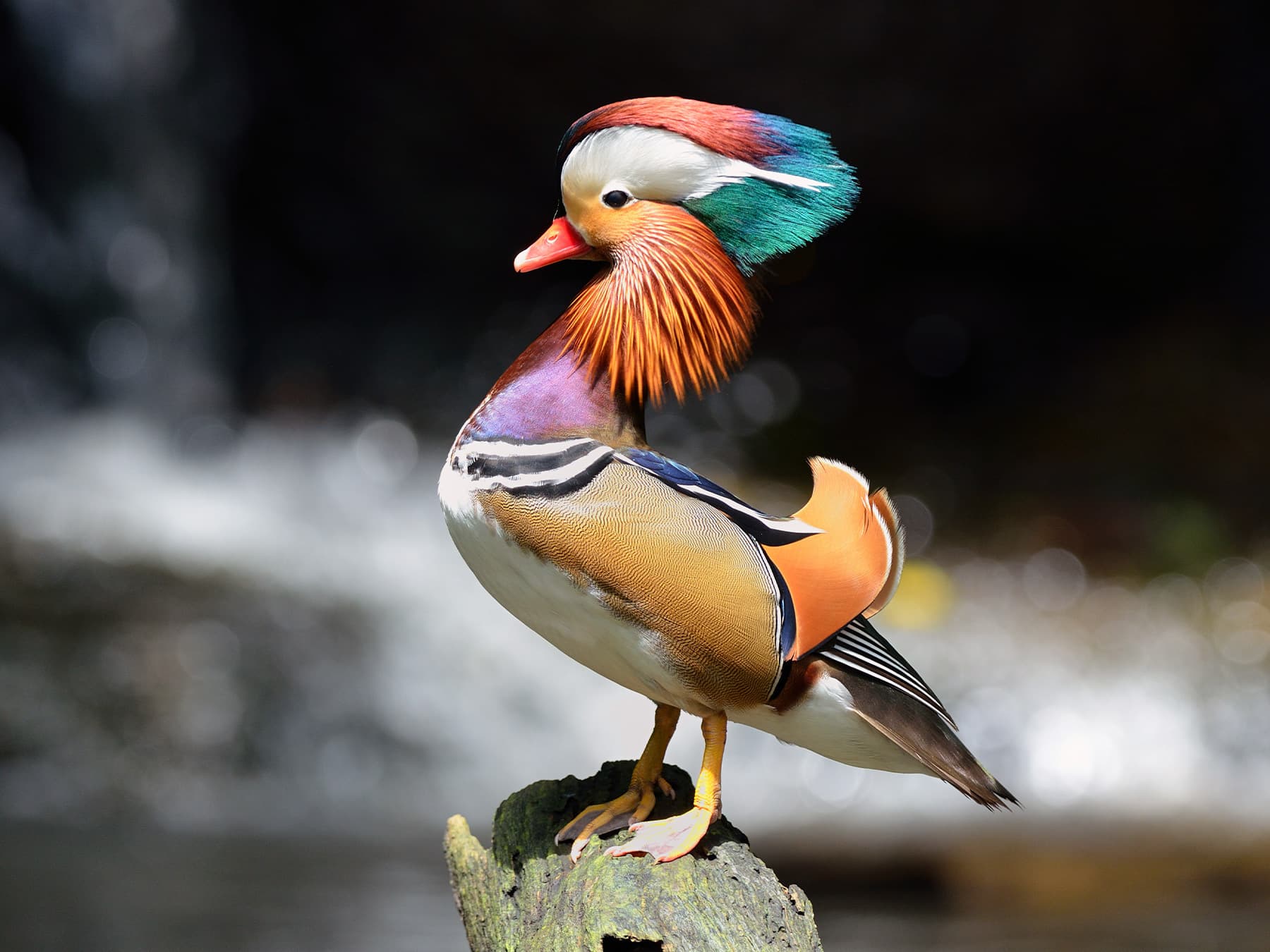
Mandarin Duck
Aix galericulataLC
Ducks, Geese & Swans
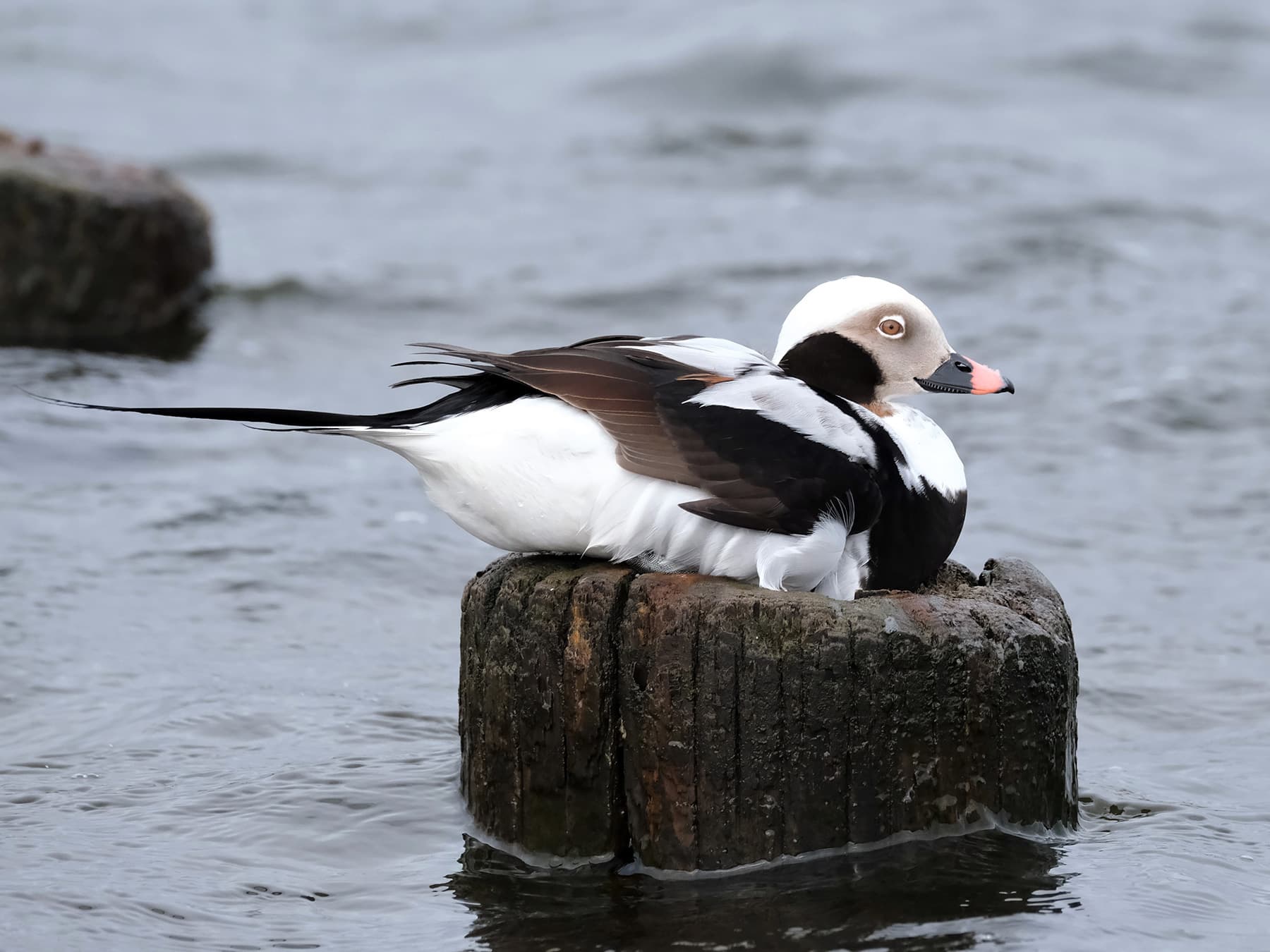
Long-tailed Duck
Clangula hyemalisVU
Ducks, Geese & Swans
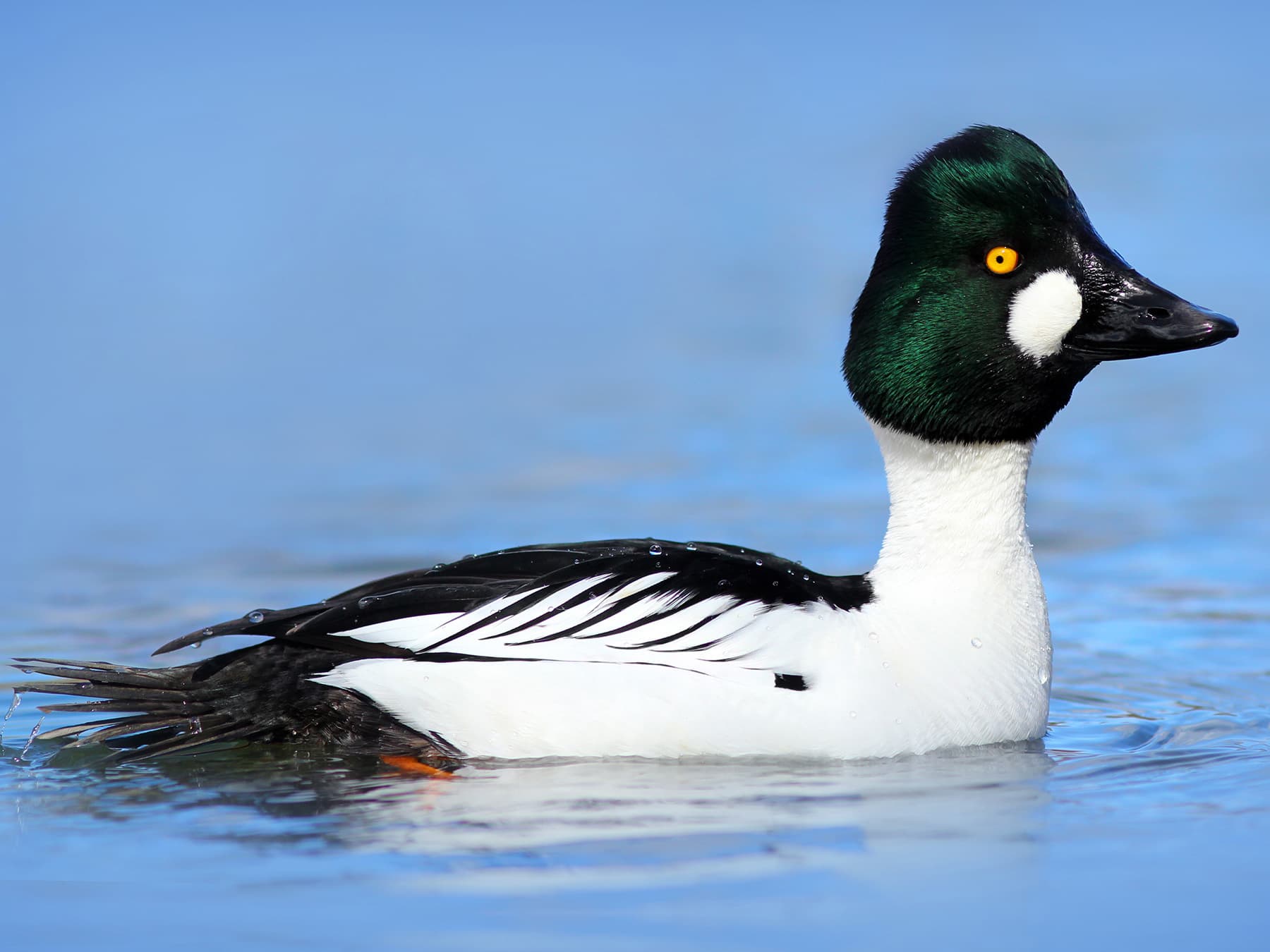
Goldeneye
Bucephala clangulaLC
Ducks, Geese & Swans
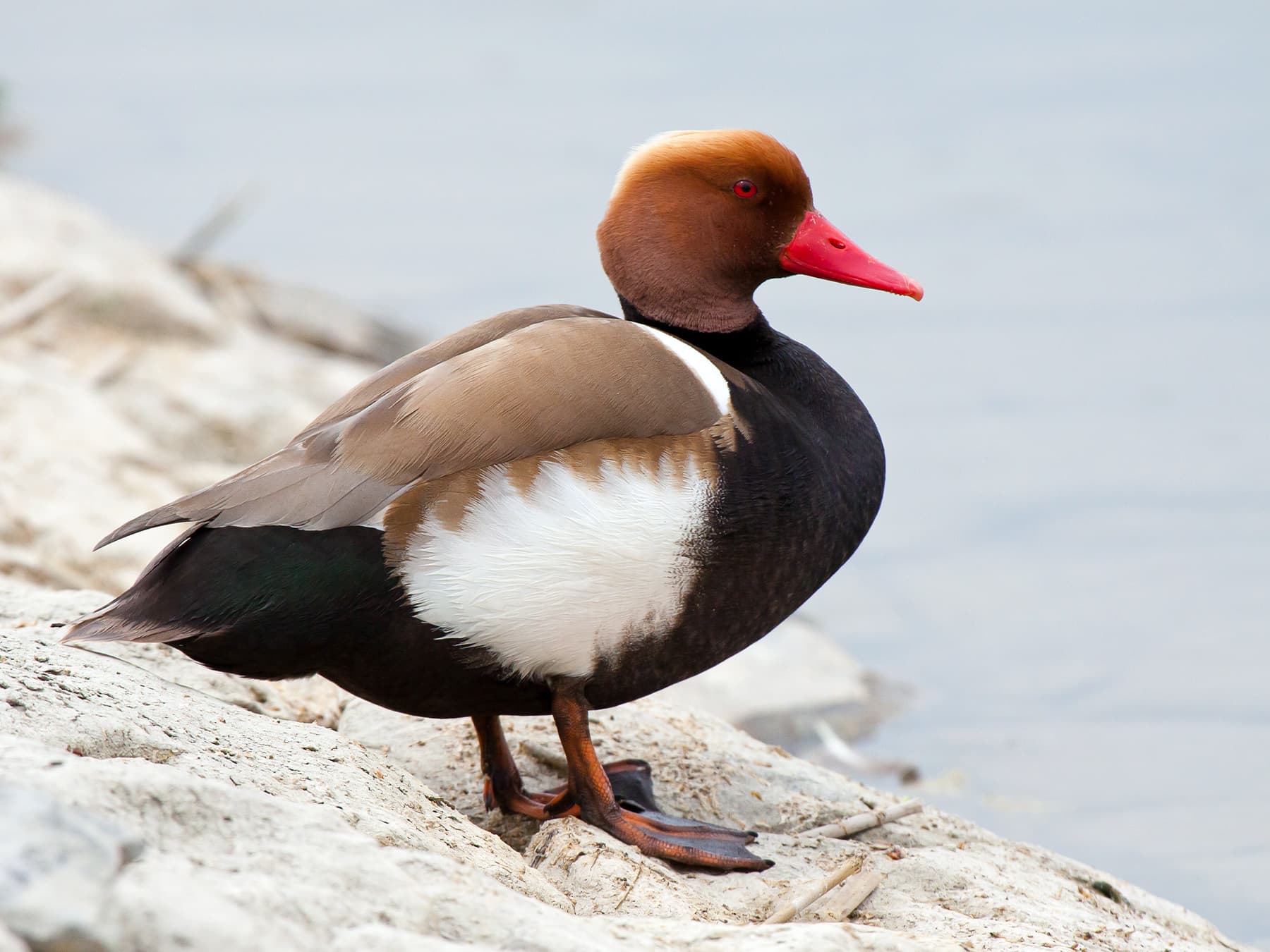
Red-crested Pochard
Netta rufinaLC
Ducks, Geese & Swans
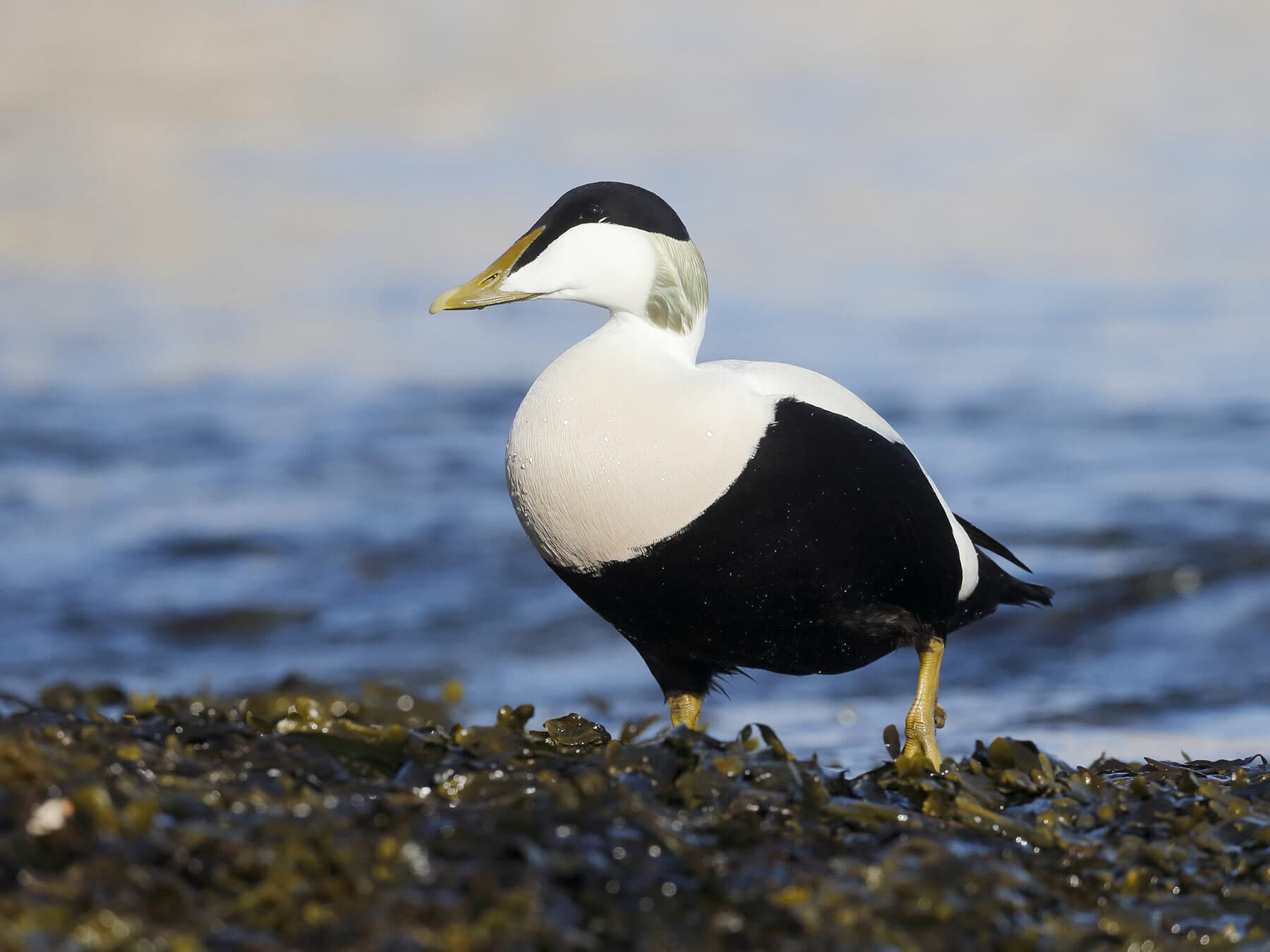
Eider
Somateria mollissimaNT
Ducks, Geese & Swans
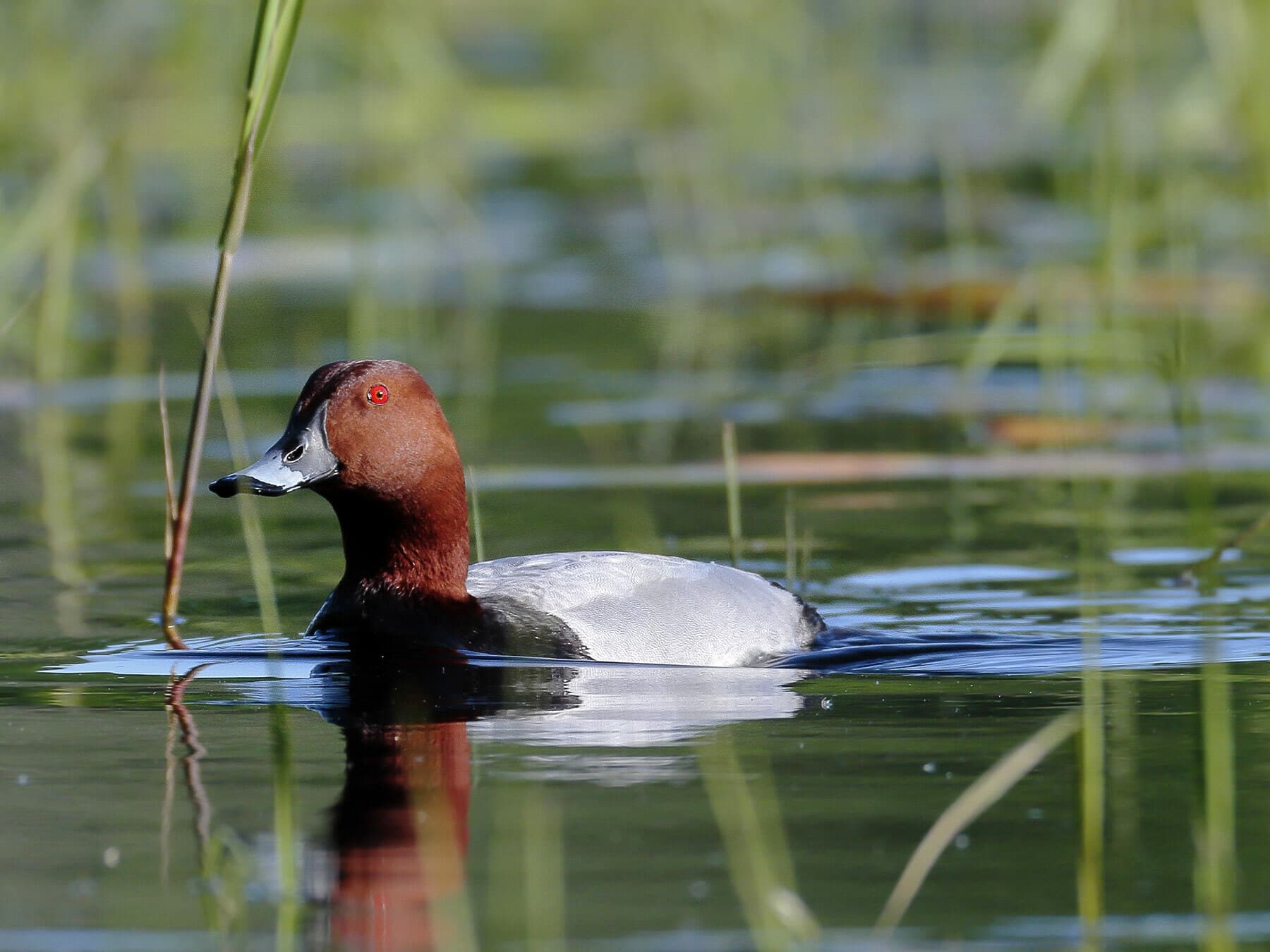
Pochard
Aythya ferinaVU
Ducks, Geese & Swans
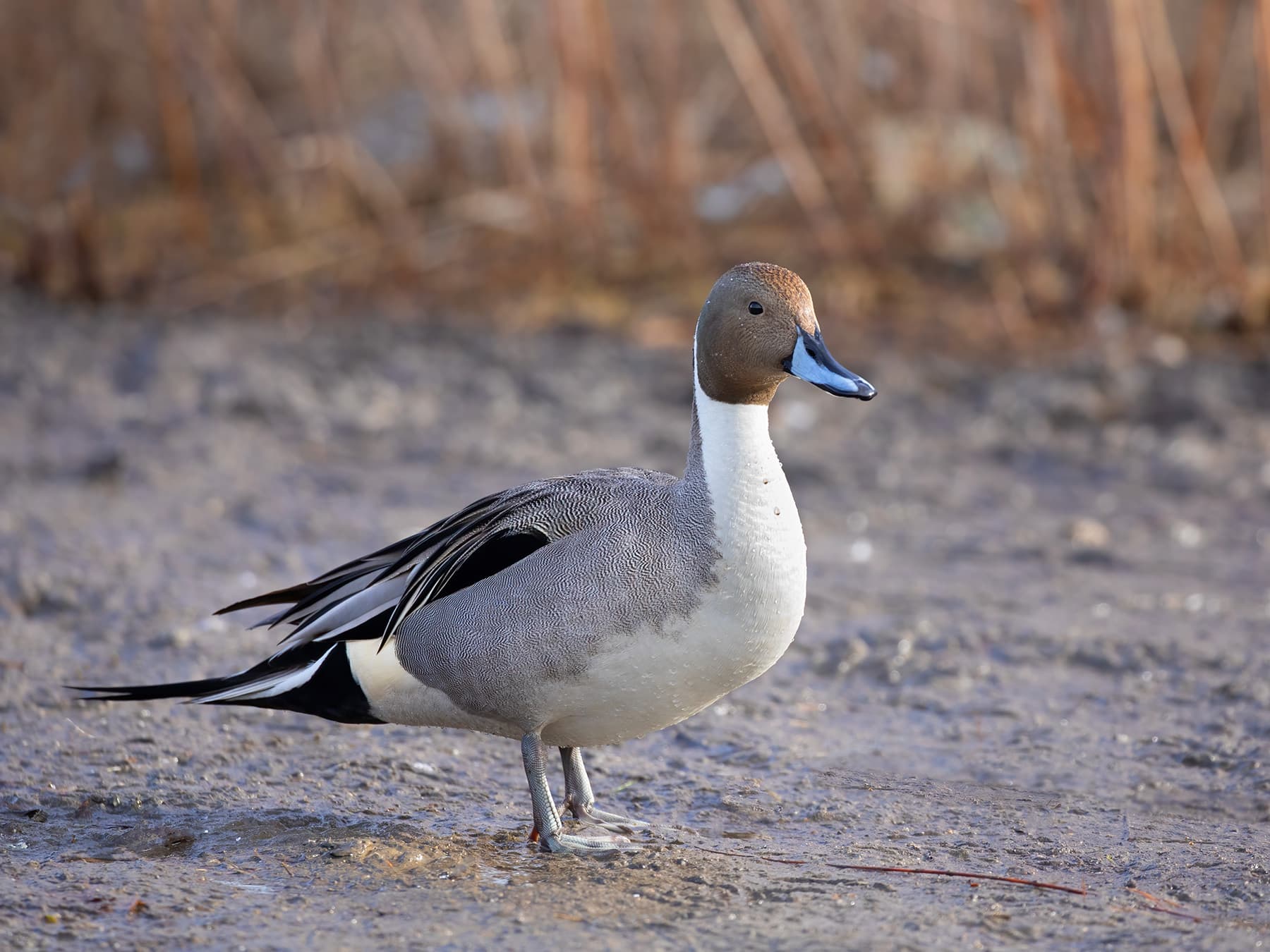
Northern Pintail
Anas acutaLC
Ducks, Geese & Swans
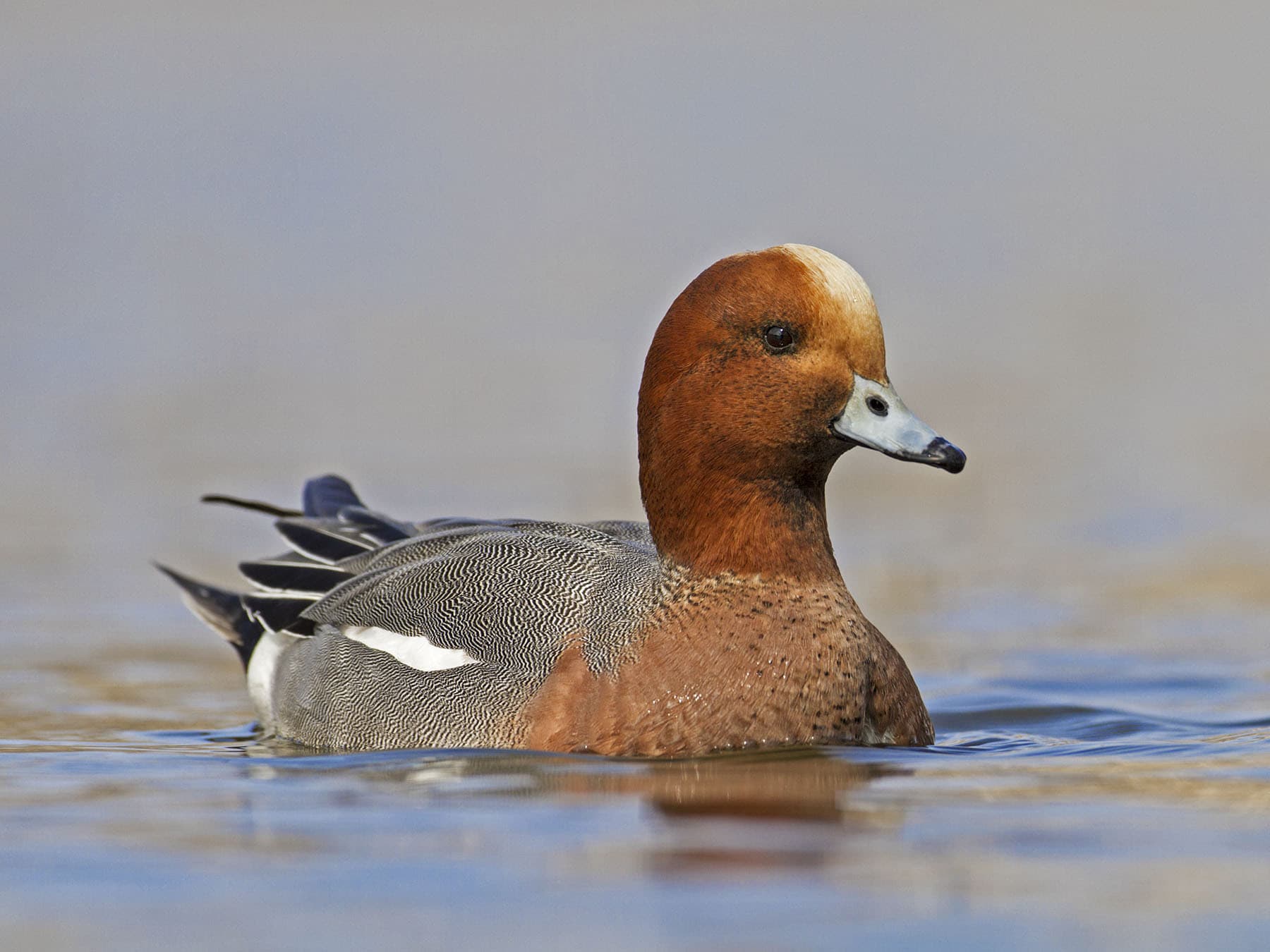
Eurasian Wigeon
Mareca penelopeLC
Ducks, Geese & Swans
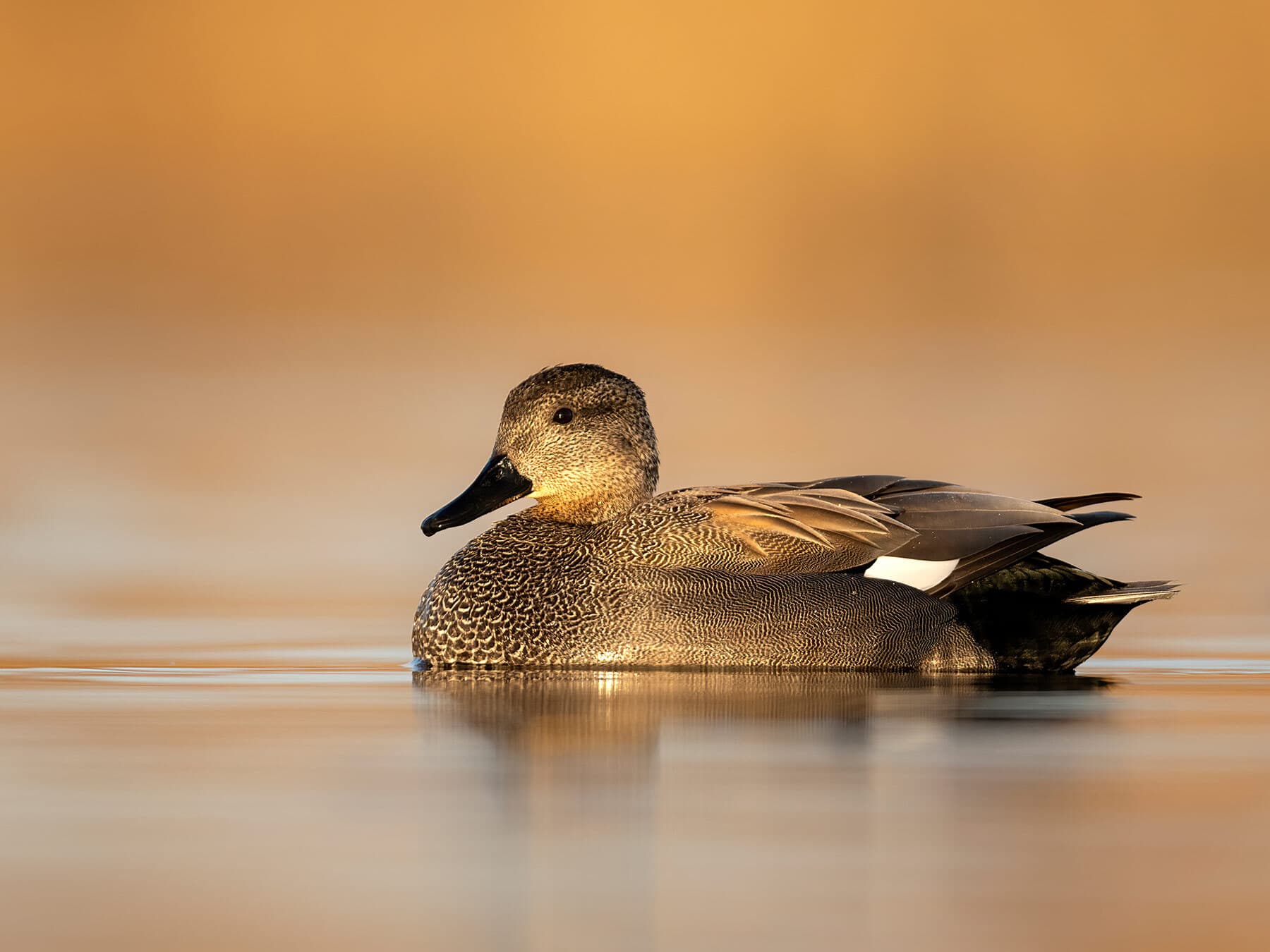
Gadwall
Mareca streperaLC
Ducks, Geese & Swans

Common Shelduck
Tadorna tadornaLC
Ducks, Geese & Swans
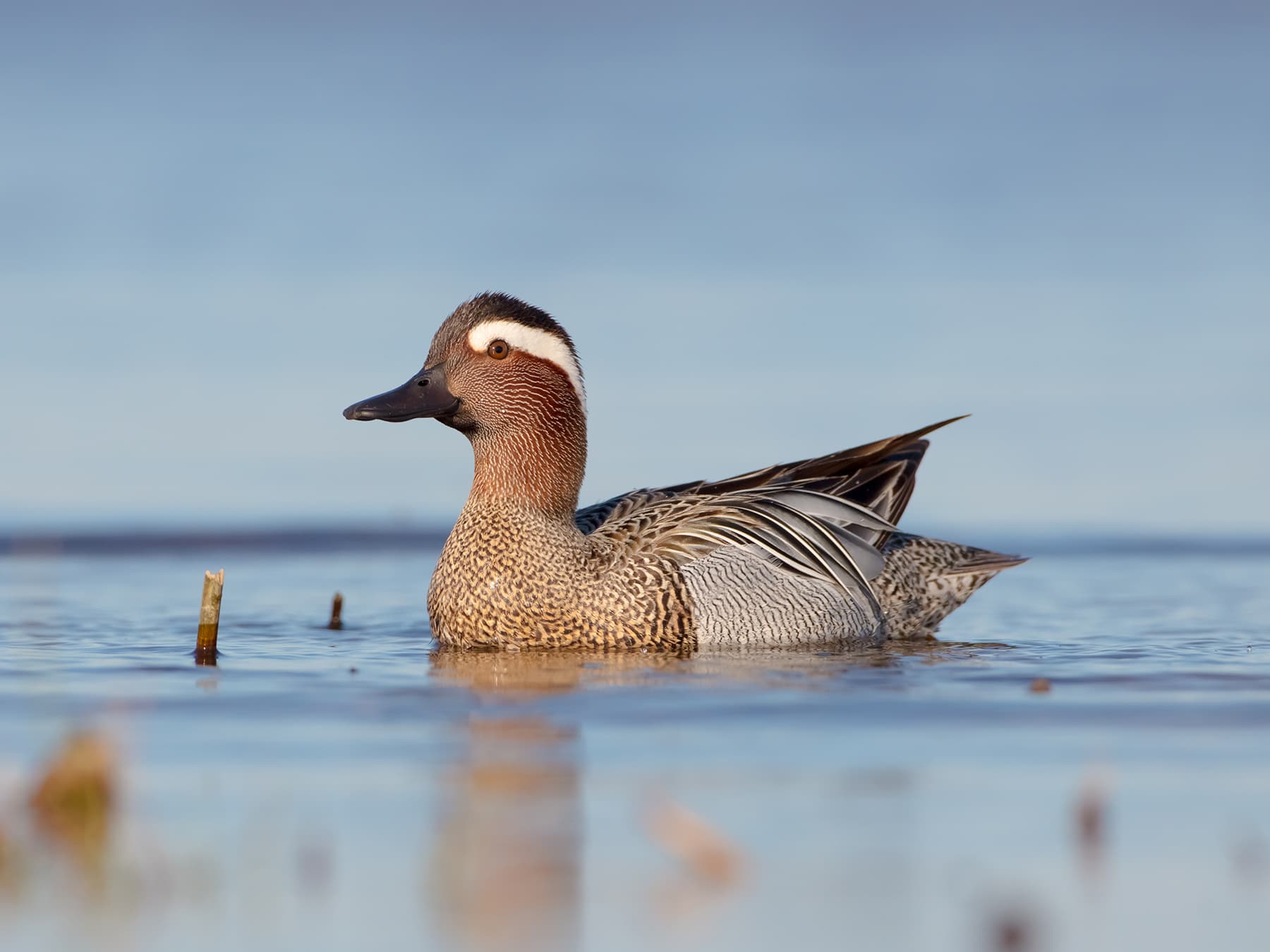
Garganey
Spatula querquedulaLC
Ducks, Geese & Swans
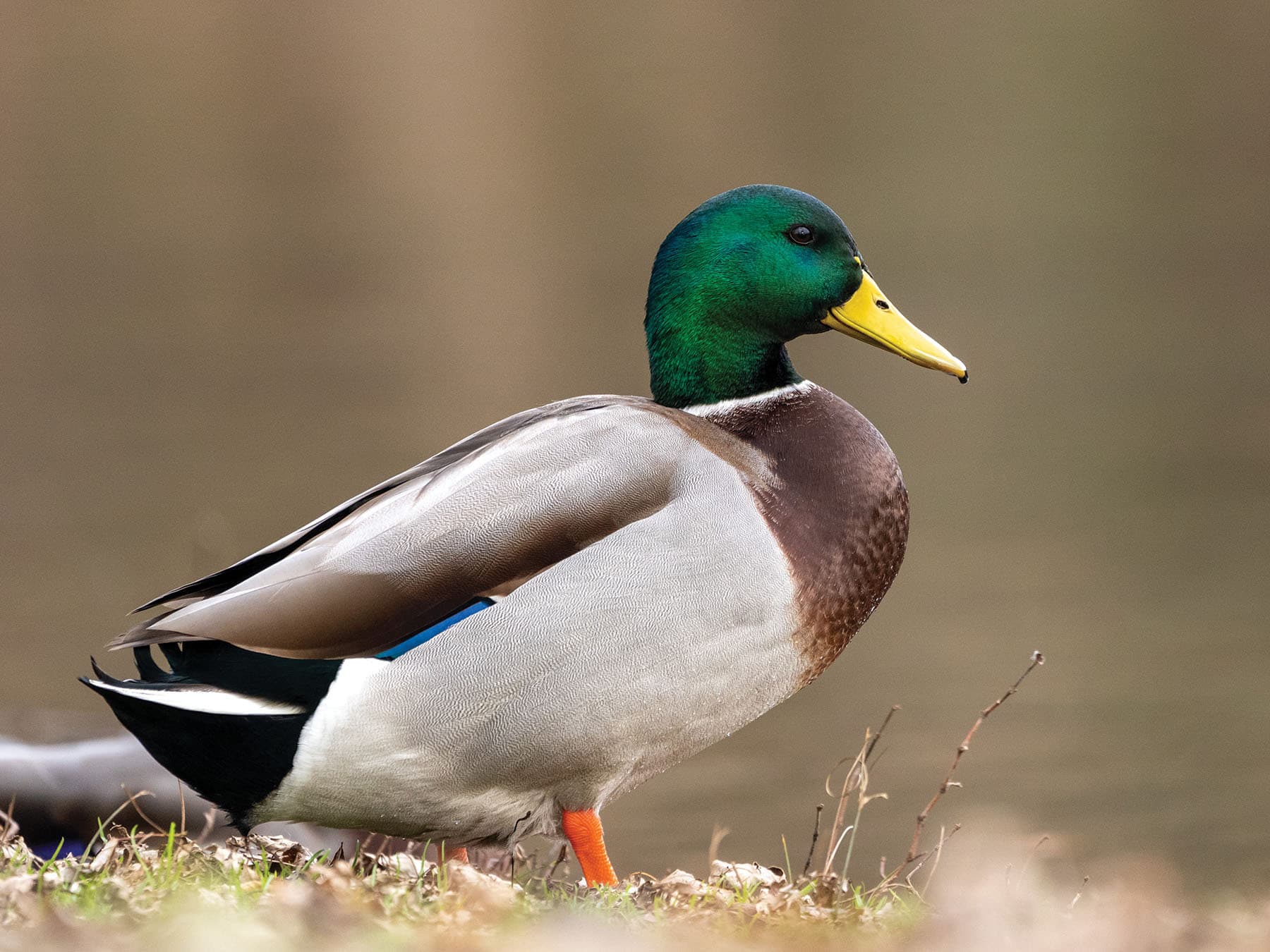
Mallard
Anas platyrhynchosLC
Ducks, Geese & Swans
Related Articles
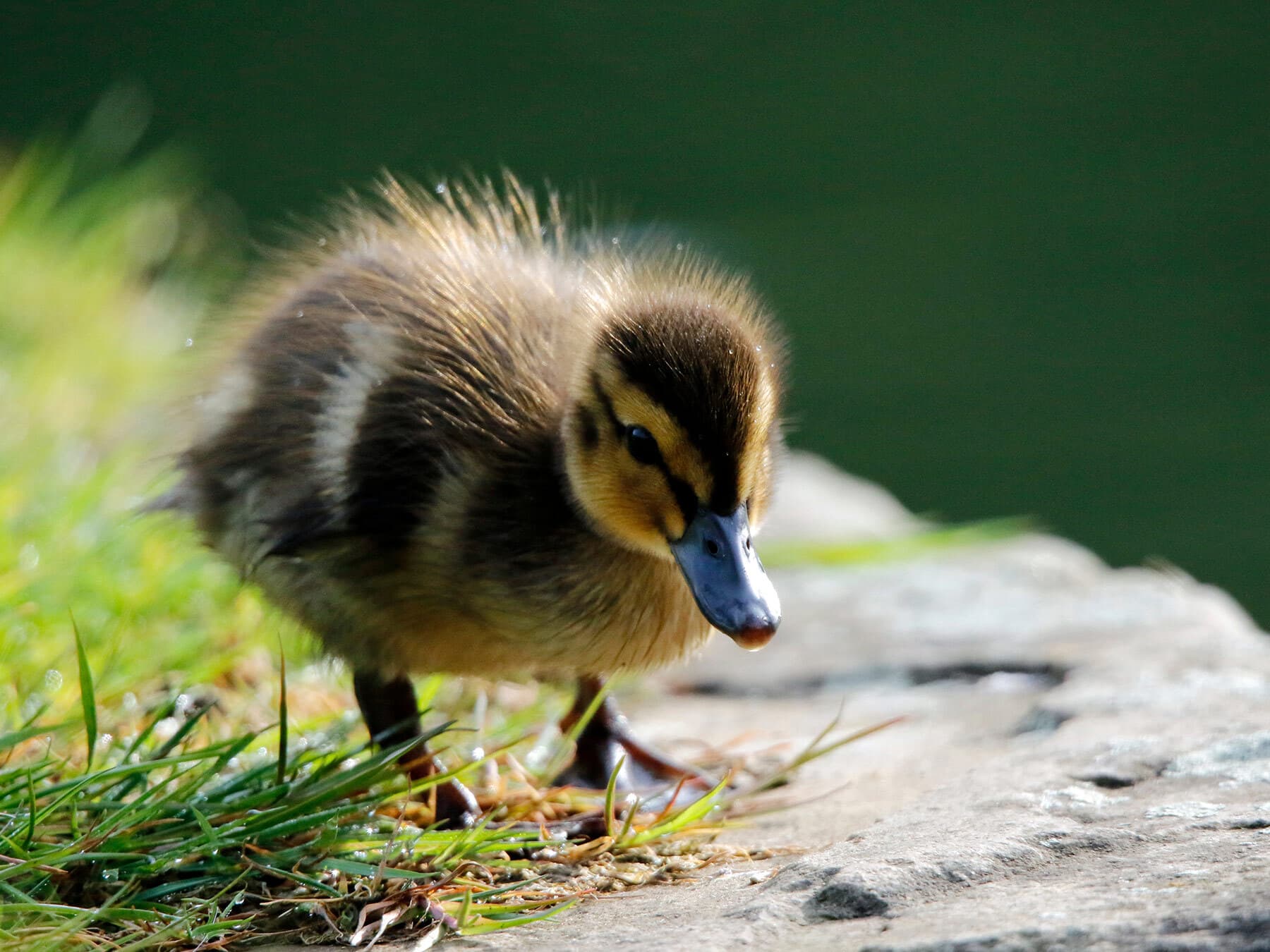
Baby Ducks (Ducklings): Complete Guide with Pictures
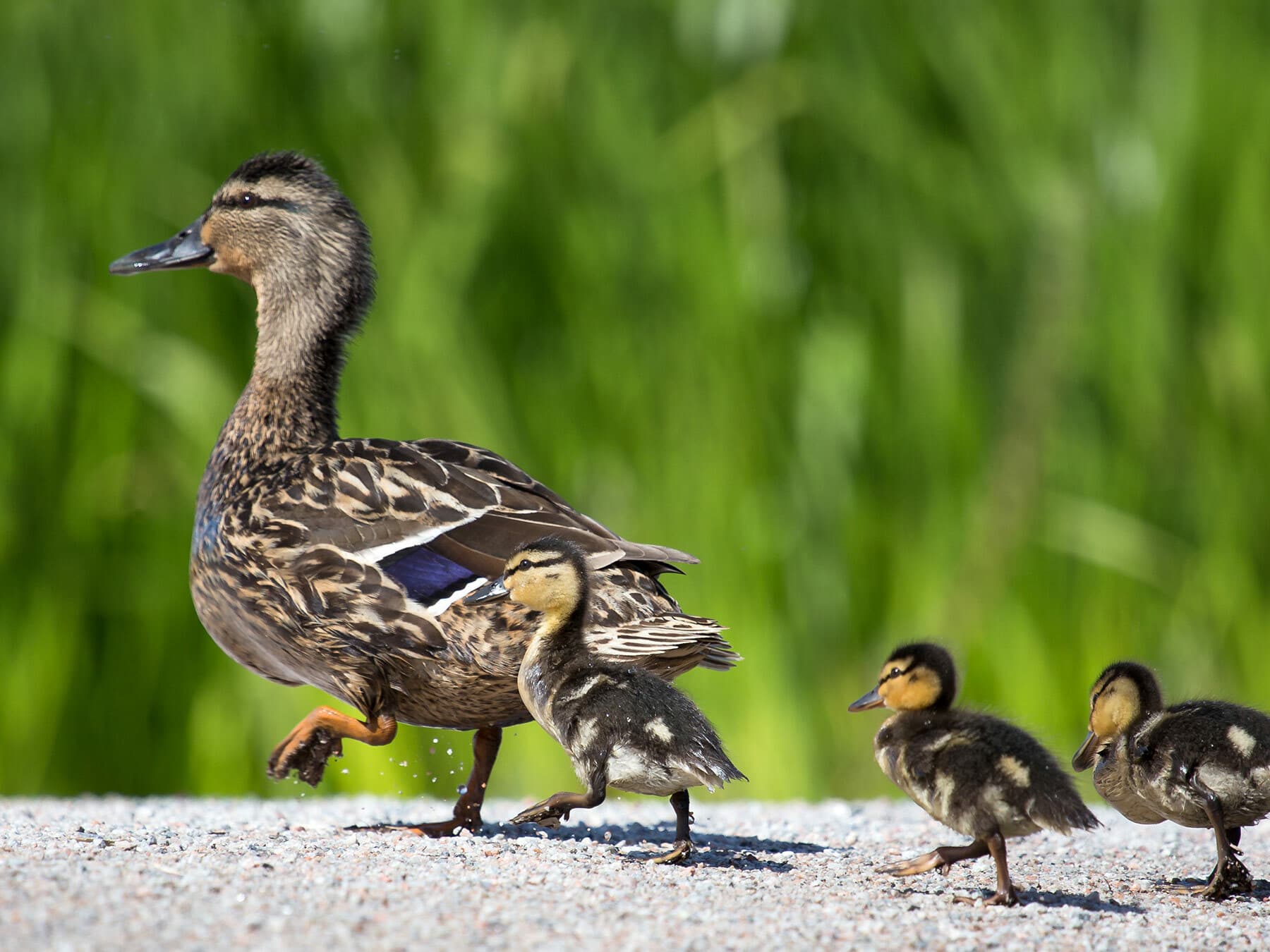
What Are Ducks’ Feet Called? A Guide to Understanding Webbed Feet
Palmate Feet Design: Ducks have palmate feet, a common type of webbed foot among aquatic birds, where the three front toes are connected by webbing, while the small, raised back toe is separate. This design is efficient for swimming and is found in ducks, gulls, terns, swans, and geese.Swimming and Steering Functionality: The webbed feet enable ducks to swim effectively, with the toes spreading apart to push through the water forcefully and then closing for the next stroke. These feet also act as a rudder for steering, essential for navigating in water.Adaptation to Habitat and Behavior: Dabbling ducks, like mallards, have centrally placed legs for easy walking on land, while diving ducks, like pochards, have legs set far back, aiding in swimming and diving but making land movement more challenging. Ducks also use their feet for taking off from and landing on water.Thermoregulation: Ducks possess a 'counter-current heat exchange system' in their legs to maintain body temperature, allowing them to withstand cold conditions and spend time in icy waters. This feature, along with the talons, color, and size of their feet, can also help in identifying different duck species.
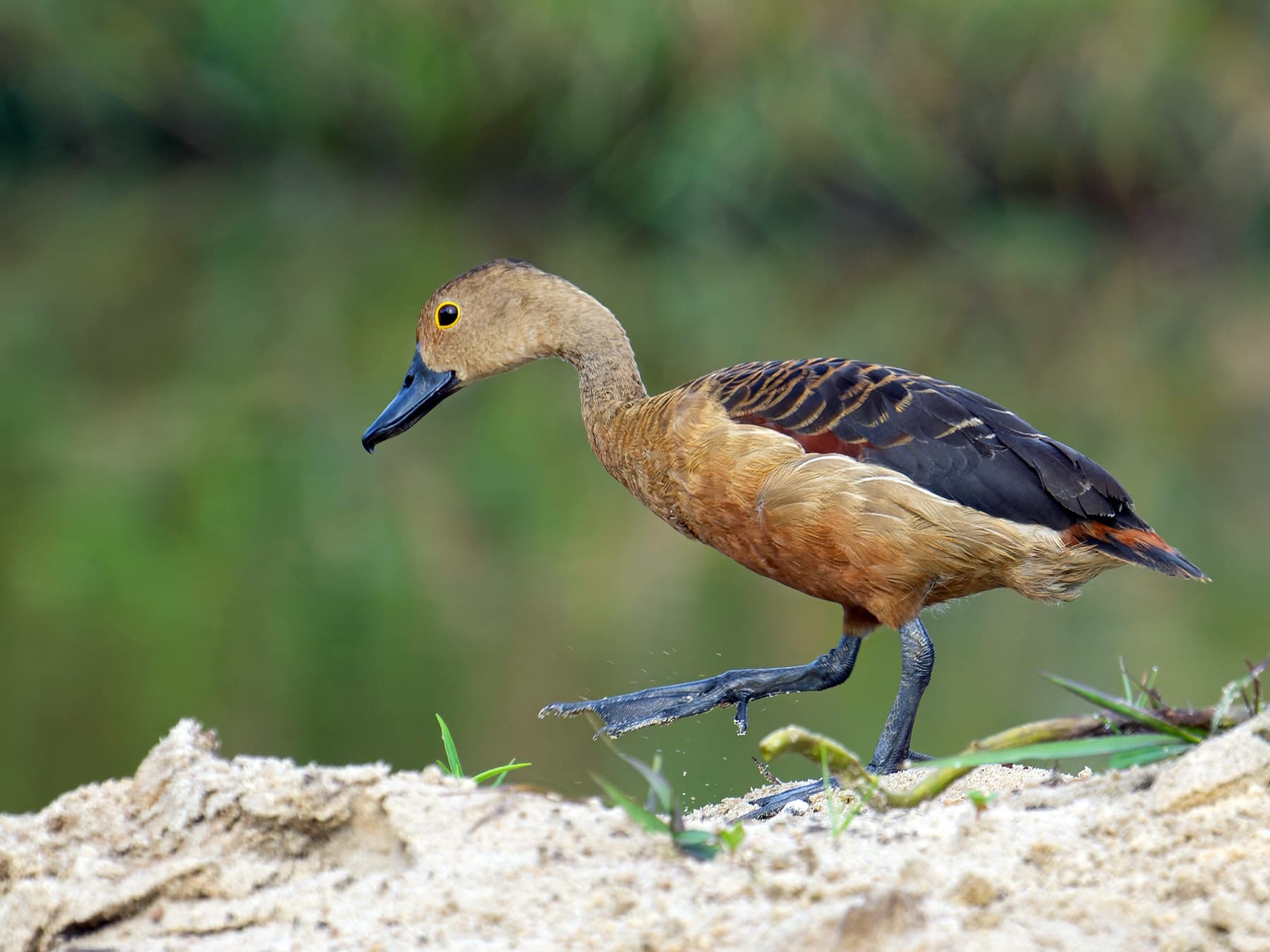
What Do Ducks Eat? (Full Diet, Feeding, Habits + Behavior)
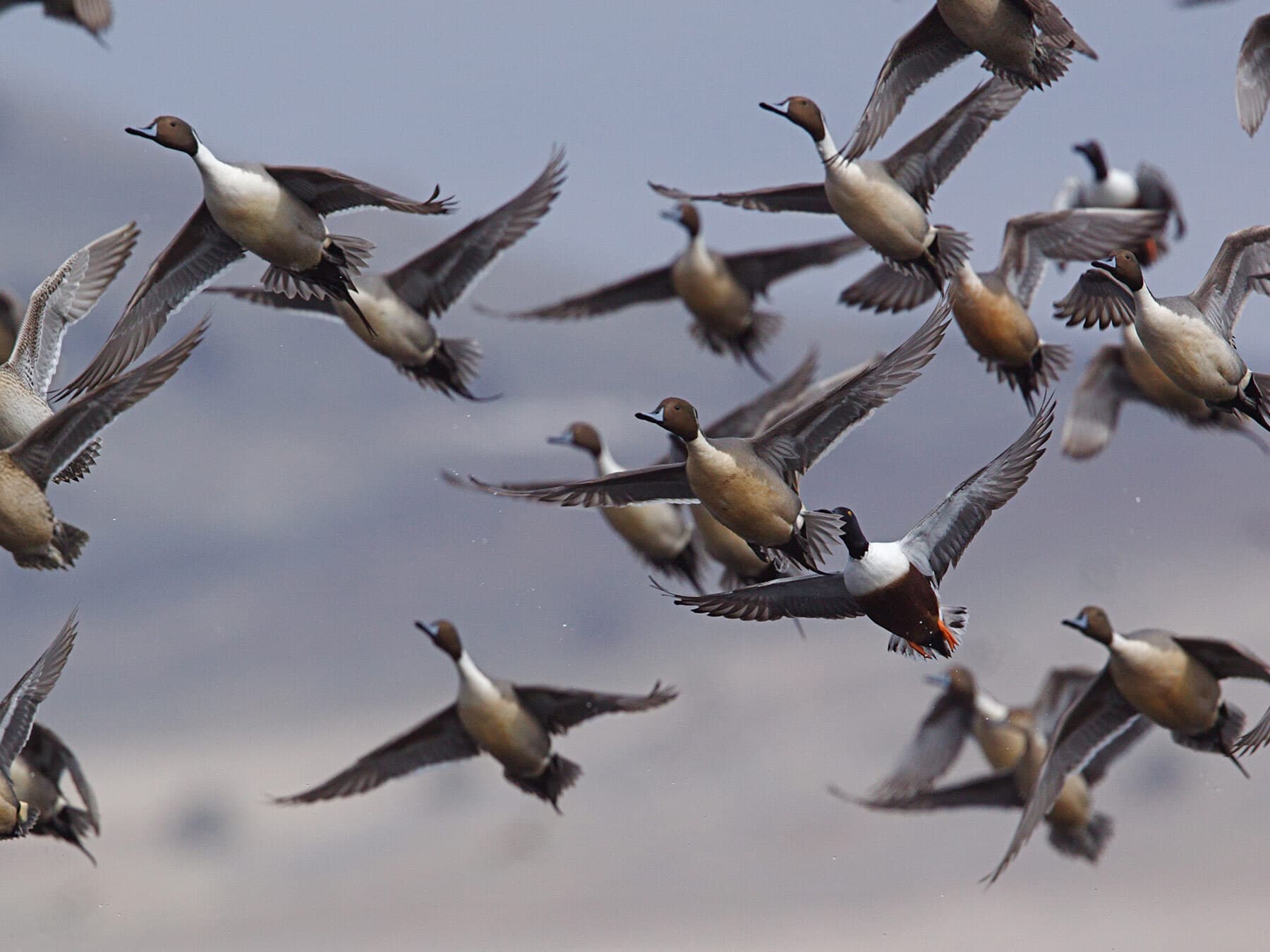
Do Ducks Migrate (All You Need To Know)
